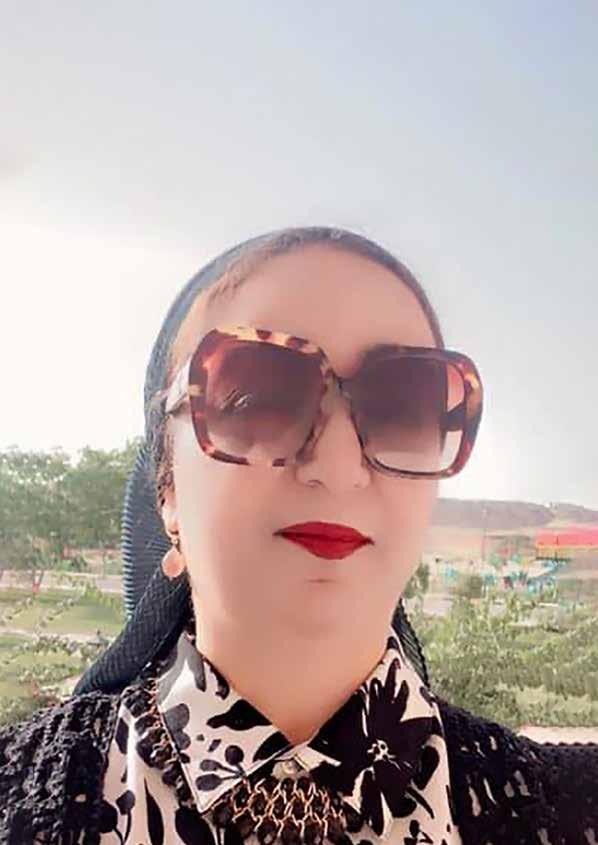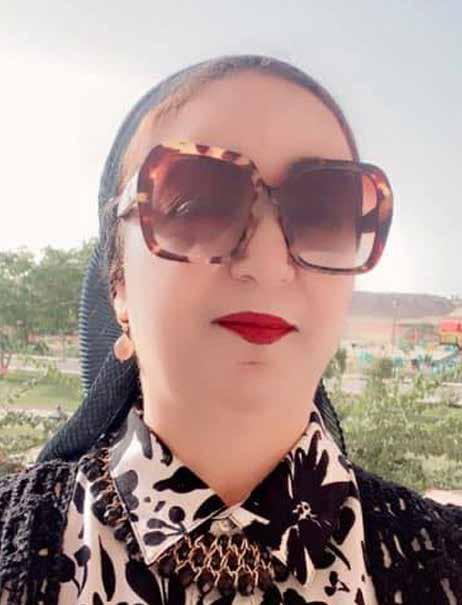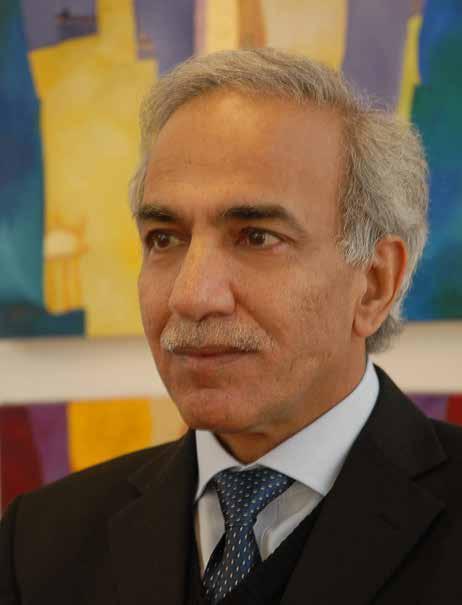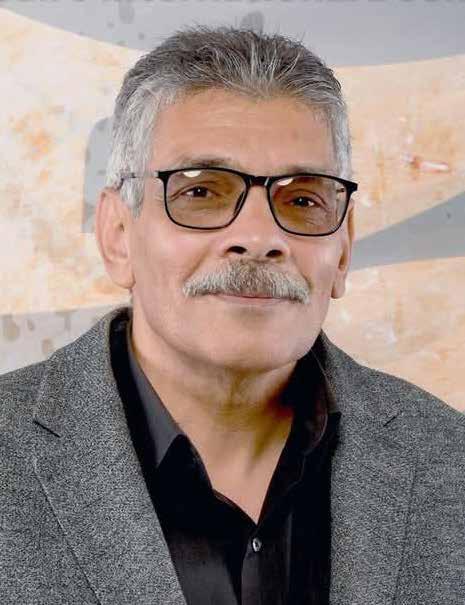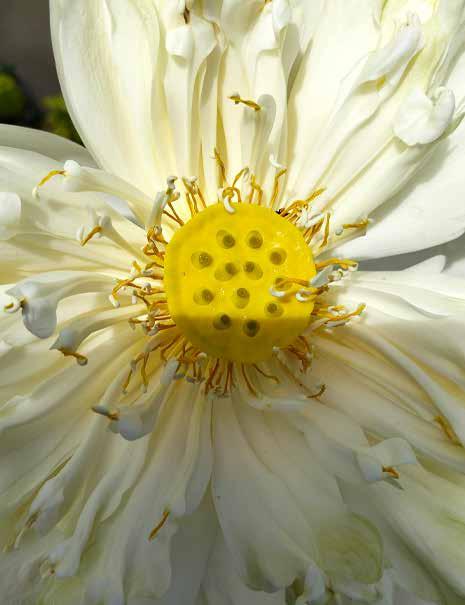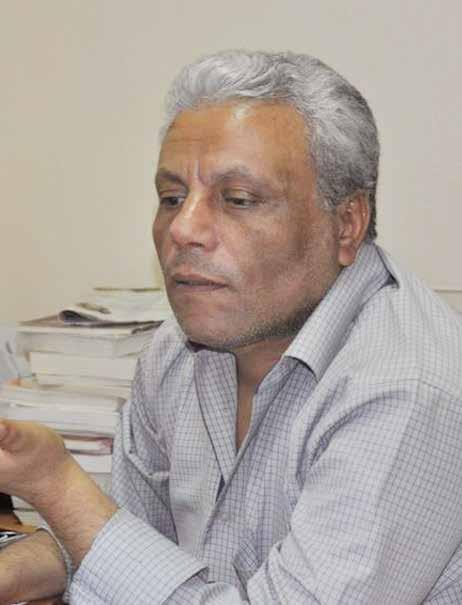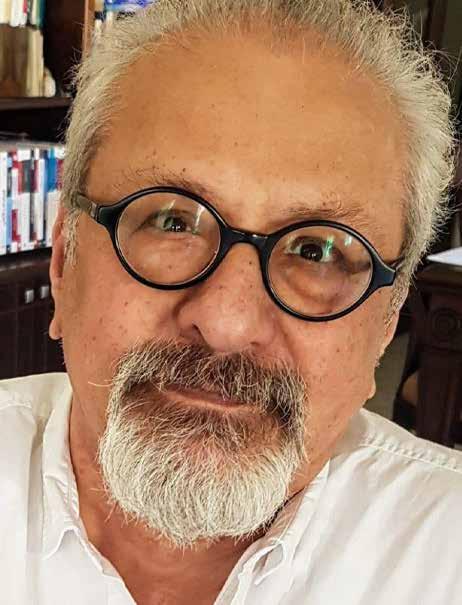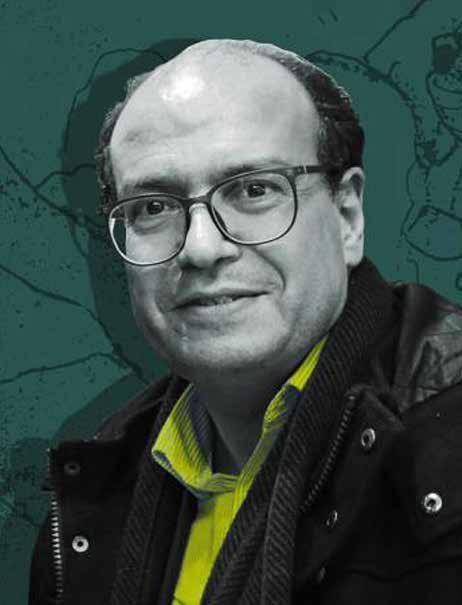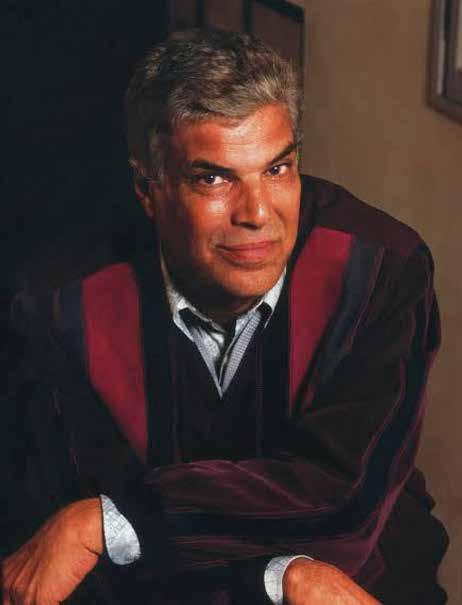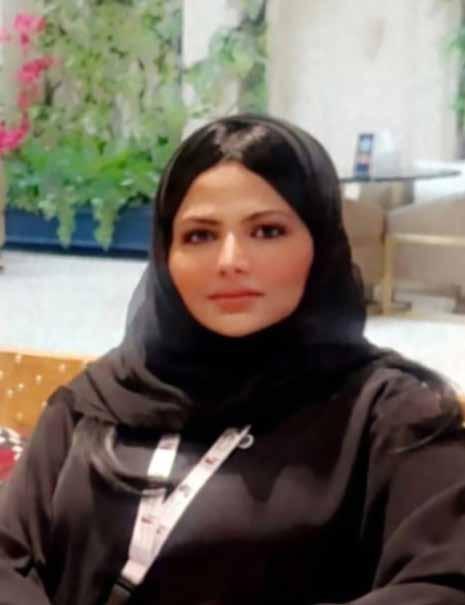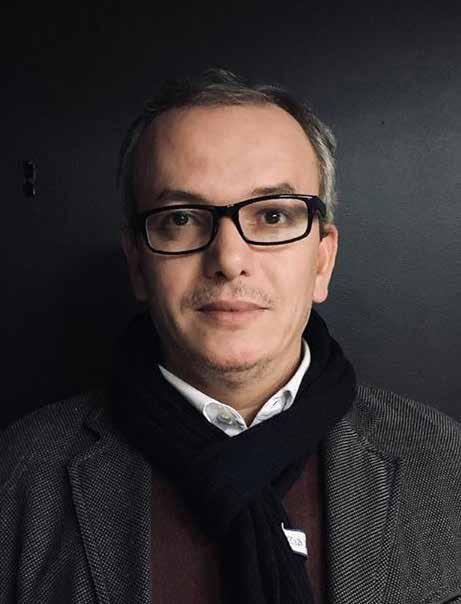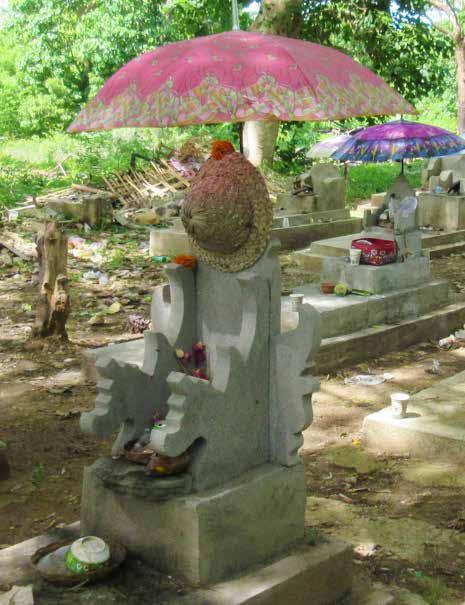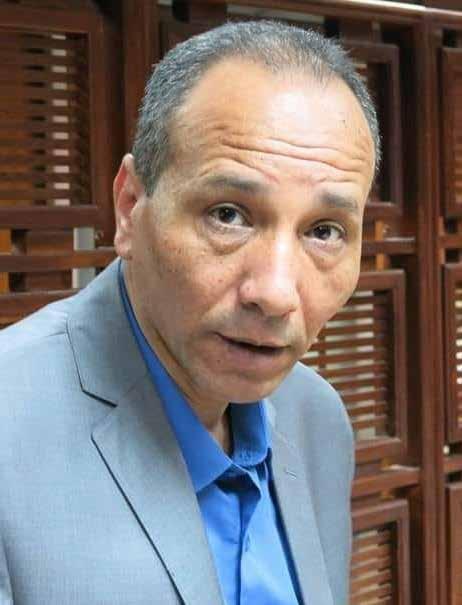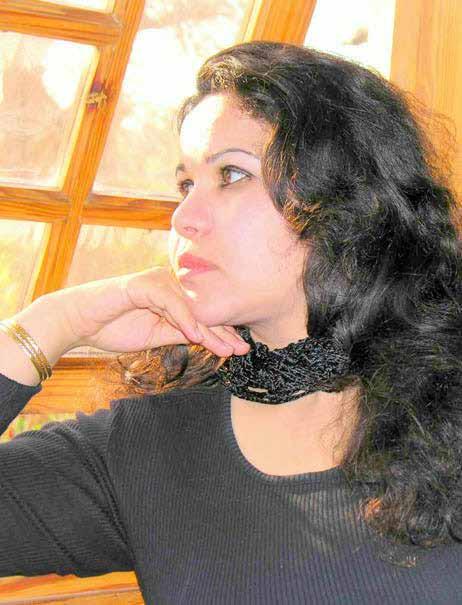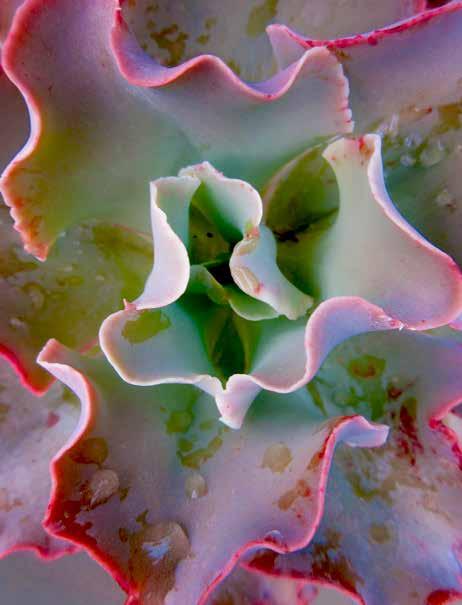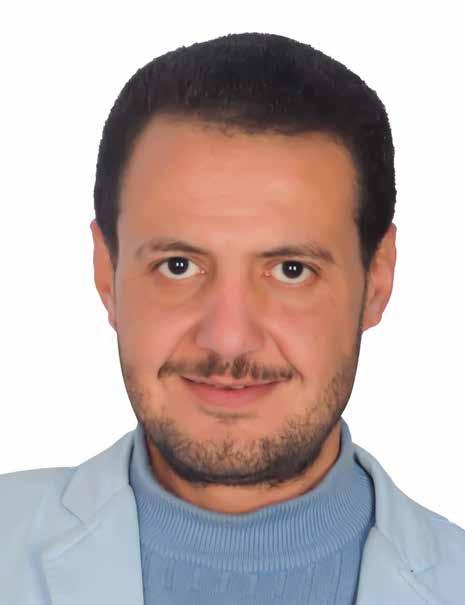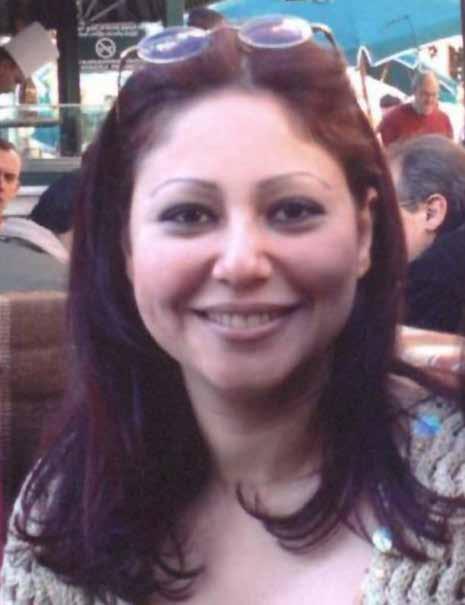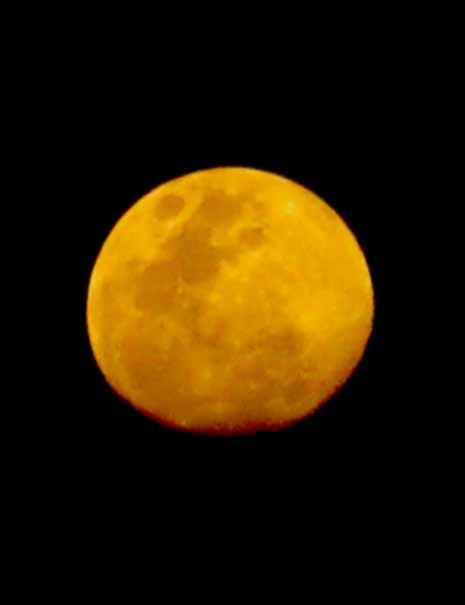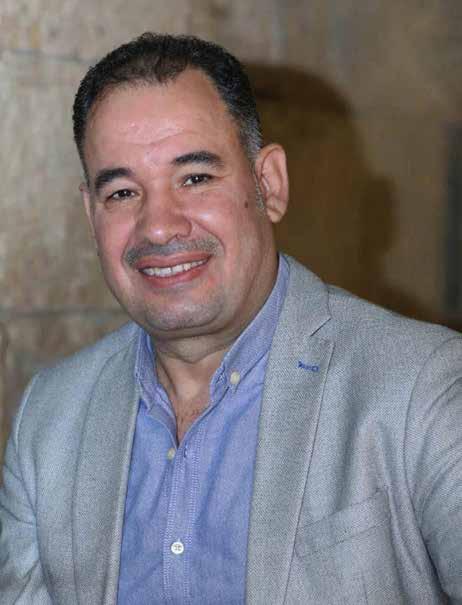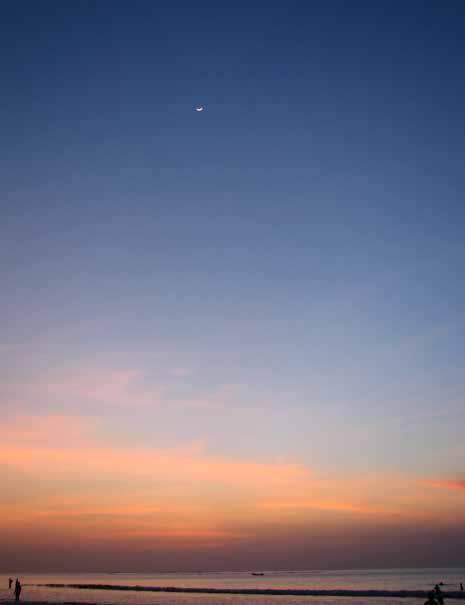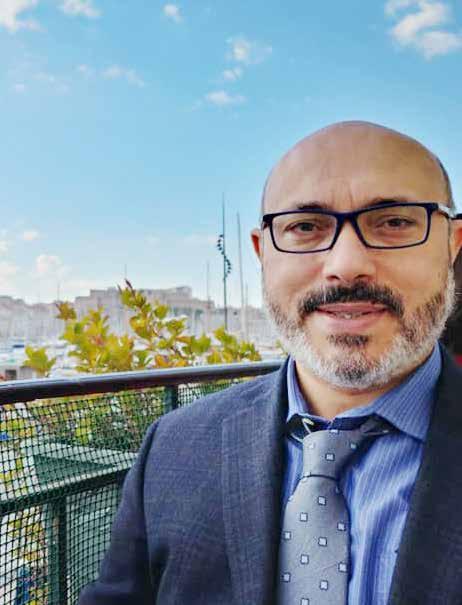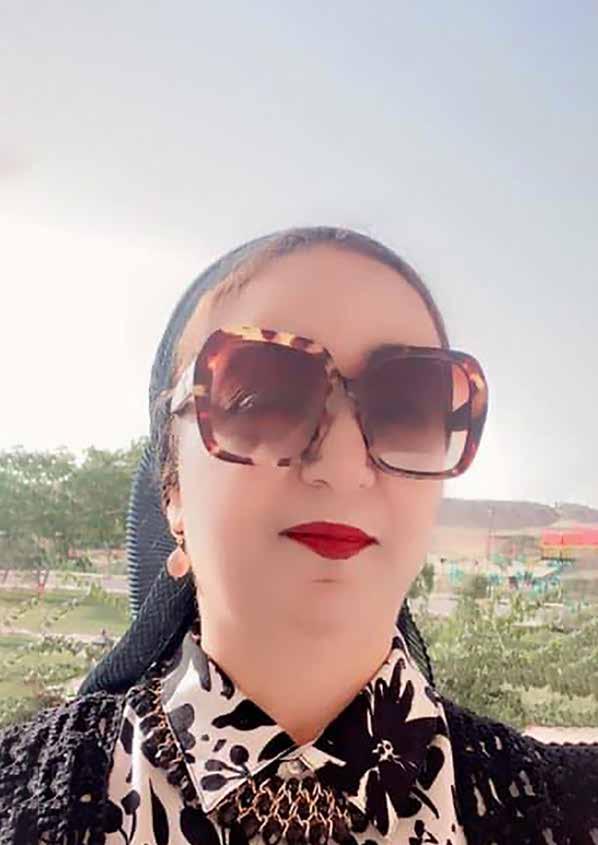Dr Salwa Gouda Echoes from the Nile: The World of Ancient Egyptian Poetry
The prevailing image of ancient Egypt is one of monumental silence: the stark geometry of the pyramids, the stoic sphinx, the towering temples of Karnak standing against the relentless sun. These structures of eternal stone speak a language of power, divinity, and the immutable cosmic order of Maat. For centuries, our understanding of this civilization was filtered almost exclusively through these official channels—the funerary spells of the Pyramid Texts, the elaborate guides of the Book of the Dead, and the hymns carved for gods and pharaohs. These texts are profound in their scope and purpose, but they inherently represent the voice of the state and the priesthood, literature concerned with eternity, the afterlife, and the metaphysical maintenance of the universe. However, if we attune our ears to a different frequency, a quieter, more delicate and profound human sound echoes from the papyrus scrolls and inscribed limestone flakes that have survived the millennia. This is the vibrant, often overlooked voice of ancient Egyptian poetry, a rich literary tradition that serves as the essential counterpoint to the civilization’s monolithic grandeur. It reveals a people not solely preoccupied with death and divinity, but one deeply in love with life, nature, and the intricate, often tumultuous landscape of human emotion. This poetry proves that the architects of eternity were also passionate, witty, vulnerable, and introspective human beings, whose inner lives were as complex and vibrant as their architectural achievements.
This significant shift from purely sacred and functional texts to a more personal, lyrical literature marks a fascinating evolution in Egyptian culture. The Middle Kingdom (c. 2050-1650 BCE), often hailed as Egypt’s classical age, saw the stabilization of the state and a flourishing of arts and letters that began to accommodate more reflective themes. However, it was during the prosperous and confident New Kingdom (c. 1550-1070 BCE)—an era of imperial expansion, international trade, and a growing, literate class of scribes, officials, and skilled artisans—that this personal voice found its full confidence and widespread expression. A society with more leisure and a broader base of literacy created an audience and a patronage system for a new kind of expression. This was a literature composed not for the tomb, but for the garden; not for the god in his sanctuary, but for the beloved in one’s arms; not for eternity, but for the fleeting, exquisite present. The most captivating and accessible of these works are, without doubt, love poems. Discovered on precious papyri like the Chester Beatty I and on informal ostraca—the pottery shards and limestone flakes used as the notepads of the ancient world—these verses feel startlingly modern in their immediacy and emotional honesty. They are not the formal declarations of state or the structured rituals of later European courtly love traditions. Instead, they are the raw, playful, agonizing, and intimately relatable whispers of lovers, their voices bridging a chasm of three thousand years with effortless grace.
The poets of the Nile Valley employed their lush, life-sustaining environment as their primary artistic palette. They perfected a technique like what would later be known in Arabic poetry as the wasf, or descriptive blazon, to paint meticulous portraits of their beloveds using imagery drawn directly from their world. A lover is never simply beautiful in an abstract sense; she is intimately woven into the very ecosystem of desire and admiration. In one famous example, the poet says: “My beloved is like a gazelle, / Whose limbs are sleek, / whose neck is long, / whose hair is dark. / I hold her fast, I will not let her go, / that I may place her in the house of her mother, / with the door shut behind us.” The choice of the gazelle—a creature synonymous with grace, alertness, speed, and wild, untamable beauty perfectly captures the essence of a desired one who is both captivating and elusive.
The concluding lines are equally significant, expressing a yearning not for illicit passion, but for private, sanctioned intimacy within the “house of her mother.” This reveals a sophisticated understanding that for all its overwhelming power, this passionate love was experienced within a real, structured world of family, social codes, and domestic expectations. The goal was to bring the wild gazelle into the social fold, to legitimize the passion within the framework of community.
In this sophisticated tradition, love is never portrayed as a mild affection but as an all-consuming, physical and psychological force that recalibrates the very being of the lover. The natural world is rarely a passive backdrop in these dramas; it is an active, sympathetic participant, a chorus commenting on and amplifying the human emotions played out at its center. This is most powerfully expressed in the pervasive theme of “lovesickness,” a condition so severe it is presented as a physical ailment that defies the finest medical care of a civilization renowned for its physicians. A lover laments with palpable despair: “Seven days since I saw my beloved, / And illness has invaded me. / My body has become heavy, / I am forgetful of my own self. / If the chief physicians come to me, / My heart has no comfort of their remedies... / What will revive me is to say to me: ‘Here she is!’” This explicit and poignant dismissal of Egypt’s renowned medical science is a powerful rhetorical declaration. It strategically positions love as a condition of the spirit and the emotions, an existential malady whose only true antidote is the tangible, physical presence of the beloved. This theme of lovesickness is also rendered with charming cunning and a touch of humor in other poems, where a young man feigns illness to lure his beloved to his bedside, knowing full well that she alone holds the cure to his fabricated, yet emotionally real, distress.
The profound pain of separation is often expressed through a direct, plaintive dialogue with nature itself. In one particularly moving poem, a lover addresses the dove, the herald of the dawn that cruelly ends a precious night of union: “The voice of the dove is calling, / it says: ‘It’s day! Where are you?’ / O bird, stop scolding me! / I found my love in his bed, / and my heart was overjoyed... / My hand is in his hand, / I walk in dance with him...” Poems from a female perspective, such as this one, are often rich with social and emotional nuance.
The dove is transformed from a neutral symbol of peace into a chiding, unwelcome intruder on intimacy. The private, authentic joy of the night is starkly contrasted with the public performance of the day, where the lovers must walk in a social “dance,” their relationship now subject to the gaze and judgment of the community. The speaker finds her ultimate validation not just in the secret consummation of love, but in the prospect of being publicly acknowledged, a status that formally protects her from the vulnerability and potential heartbreak of being a mere secret. These poems were thus not only pure expressions of emotion but also sophisticated navigations of a complex social world where public honor and private desire were in constant negotiation.
Running parallel to this intimate, secular tradition was the continued flourishing of the religious hymn. These works, while more formal in structure and purpose, are nonetheless masterpieces of poetic metaphor and aweinspired observation, seeking to give shape to the formless and a voice to the ineffable. The sun god Amun-Ra could be envisioned as a falcon soaring across the vault of the sky or a mighty ram whose breath gave life to the entire world. The great Hymn to the Nile personifies the annual, life-giving flood as the god Hapi, a force of benevolent chaos and creation whose arrival meant “the poor and the rich are laughing, / the trees and the vegetation are verdant.” The pinnacle of this sacred poetry is undoubtedly the Great Hymn to the Aten, attributed to the pharaoh Akhenaten during his revolutionary monotheistic reign. This hymn is a masterpiece of world literature, notable not just for its radical theology but for its intensely intimate and joyful portrait of divinity. The sun-disk Aten is not a fearsome overlord but a benevolent, nurturing presence; its rays are repeatedly described as “hands” that “soothe,” “caress,” and embrace all they touch. The hymn is a breathtaking, almost scientific catalogue of the world awakened by the sun, and it reveals a remarkably global and inclusive consciousness: “How manifold are your works!... The countries of Syria and Nubia, and the land of Egypt; You set every man in his place... Their tongues are diverse in speech, and their natures as well; Their skins are different, For you have differentiated the peoples.”
This focus on the tangible, visible world—from the chicks in their nests to the diverse cultures of humanity—creates a powerful bridge between the divine and the everyday, mirroring the same keen, loving observation of nature that animates the secular love songs.
The figure who most perfectly embodies this seamless connection between the divine and the human, the cosmic and the personal, in Egyptian poetry is the goddess, Isis. In grand temple hymns from the Late Period, particularly at her great cult center at Philae, she is celebrated as the universal mother, “the Great Magician, the Queen of the Gods” whose power and scope transcend Egypt itself. Yet, her most resonant and poignant poetic role is rooted in the foundational mythology of Osiris. Here, she is not a distant, omnipotent deity but a vulnerable, intelligent, and fiercely determined individual using her wits, her courage, and her formidable magical prowess to restore her murdered husband and shattered family. Her laments for Osiris are among the most powerful love poems in the entire Egyptian canon. In these texts, she is the archetype of the grieving widow and devoted wife, a figure of profound pathos. This narrative of unwavering loyalty, desperate search, and magical restoration made her an immensely sympathetic and accessible archetype for universal human experiences of loss, devotion, and resilient hope.
It is no surprise, therefore, that her influence directly infused the secular love songs, creating a fascinating synchronicity between religion and daily life. In the Chester Beatty Papyrus I, a young lover swears: “I love you; I choose you before all others... Let me not be forced to swear, ‘By the beautiful Isis!’ lest I take my oath in your name. Come to me, that I may see your beauty!” Here, the poet brilliantly uses the immense cultural and religious weight of the Isis myth—her legendary, unwavering fidelity—to underscore the depth and absolute seriousness of his own human passion. To swear an oath by Isis is to invoke the ultimate standard of devotion; to do so frivolously would be a sacrilege. The lover’s fear is that his feelings are so profound that any oath would be true, binding him eternally.
Through this divine figure, the sacred hymn and the secular love poem are revealed as two complementary expressions of the same fundamental, world-shaping power: the force of love and fidelity, whether directed toward a god or a mortal beloved.
To fully appreciate this poetic tradition, one must mentally reconstruct its original context as a primarily oral and social art form. It was meant to be performed, not just read. Poems were sung or recited to the melodic accompaniment of harps, lyres, and the rhythm of tambourines and sistra during festive gatherings in the lush gardens of wealthy estates or in more modest communal settings. The very structure of many poems, featuring call-andresponse patterns or dialogues between groups of young men and women (the chorus of youths and maidens), points directly to their performance at banquets, harvest festivals, or other social celebrations. The archaeological discovery of these texts at Deir El-Medina, the village of the royal tomb-builders, is particularly telling. It provides incontrovertible evidence that this lyrical expression was not the sole province of the elite scribal class or the royal court. The highly skilled artisans who carved the pharaohs’ eternal resting places in the Valley of the Kings scrawled these very love songs on the limestone flakes and pottery shards they used for practice sketches and memos. This is a profoundly poignant symbol of the enduring human need to express love, joy, and beauty—a need that persisted and flourished even in the direct shadow of the death-obsessed monuments they were commissioned to build.
Furthermore, the Egyptian language itself was a key tool in the poet’s arsenal. Its root-based system and remarkably flexible syntax were perfectly suited for the layered meanings, puns, and evocative metaphors that characterize great poetry. A word for “heart” (ib) could simultaneously imply “mind,” “will,” and “understanding.” The simple act of “entering a garden” could carry unmistakable and powerful erotic connotations. This inherent linguistic richness allowed for a density of expression, a resonance of sound and sense, that is often largely lost in translation, reminding us that what we read today is only a faint, ghostly echo of the original’s full musicality and semantic complexity.
Ultimately, the poetry of ancient Egypt compellingly shatters the longheld, simplistic image of a morbid, death-obsessed culture. In its place, we find a people who were keenly, lovingly observant of their environment, who celebrated the body and its senses without shame, and who understood love in all its forms—erotic, familial, divine—as a powerful, disorienting, and ultimately life-affirming force. They gazed at the same vast night sky that inspired their grand cosmologies and saw in it a metaphor for a lover’s flowing hair. They felt the same blazing sun that empowered their king as a god and felt its warmth as a personal, nurturing embrace. The names of these individual poets are almost entirely lost to history, subsumed into the collective, anonymous voice of their culture. Yet, in the delicate, graceful lines of a love poem scrawled on a shard of pottery destined for the midden heap, or in the majestic, soaring verses of a hymn carved into a sunbaked temple wall intended to last for eternity, they achieved a different, perhaps more profound kind of immortality. They proved that the most lasting monuments are not always made of stone. The most enduring are woven from the simple, yet eternal, materials of words that capture the timeless rhythms of the human heart—its passions, its wonders, its sorrows, and its eternal, joyful conversation with the world. In their poetry, we do not meet a dead civilization, but living, breathing, feeling voices. In listening to them, we recognize a part of ourselves, connected across the immense gulf of millennia by the universal and shared experiences of love, longing, and the sheer, unquenchable awe of existence. This literary legacy is their true and greatest pyramid: an invisible, indestructible structure built not from quarried limestone, but from the enduring material of human emotion.
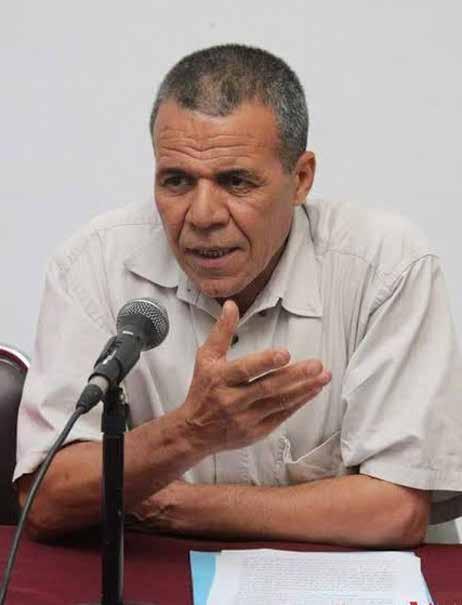
Abdel Wahab Al-Melaweh
Abdel Wahab Al-Melaweh (b. 1961) is a prolific Tunisian author whose diverse body of work includes over ten poetry collections, two novels, and several critical studies, in addition to his contributions as a translator.
Translated from Arabic by Dr. Salwa Gouda.
Suspicions
Nothing quenches my fires
Not water, not air, not earth
While illusion is a precautionary measure that intensifies the blaze of the mirage, Who said I am aflame!
I am merely stuck on a bridge swaying between two tunnels that open like stifled screams
The morning is a mouth devouring the dream
And time is a wound drowned in its own affairs
In vain
It arranges the emotion of the trees to the rhythm of my gazes
And I enter my pupil from one side into the gloom
So that my stature vanishes into splinters of flame that rouse the water from its slumber
Toy with the air, and procure a new garment for the earth
I did not say that I am aflame
The sirens of fire trucks disturb me,
O spectators; there is nothing nobler than a tear fluttering like a butterfly of flame
O spectators; do not break the rhythm of the laughter’s dance
For there is still room in life for more numbness of the soul
And profanities have not yet entered the dictionaries of lovers
Lost in the embrace of lies
Filled with my losses
I will not let tears mend my shroud
continued overleaf...
My corpse will not stumble as it falls from the hands of my indifference I am the cause of my breaking
And I am my defeat
I am all that the swindled dream has done to me
I remember nothing of myself, nor do I remember having a morning that opens like a balcony
Illuminated by the laughter of a mischievous hope
That is what my socks promised me, sent by an old lover as a gift for the birthday of our neighbor’s dog, the sole witness to our day of parting
I am no longer fit for laughter!
I said to my neighbor as he told me a new joke?
Other days will come when we embrace the flower’s scent, so it does not wilt And other days will come when the Native Americans return as incantations to chase away human-like specters
I will not extinguish myself with a suspected fire
There is still room inside me for more beautiful fires.
The depth
The gardens that do not sleep at night disturb no one
The sea is not, as you think, the deepest
And the sky that rises high is not, in its turn, the highest Days do not follow in succession
They sometimes falter in the completeness of their roundness and curl around themselves
A little recklessness will be enough
For life to cease its lying
And for the trees to strip off their shirts in defiance of the alleged justice of the seasons
Woodstock was not merely a sensual celebration
Or promotional posters for universalizing the benefit of chaos
In this age of collective suicide
How astounding it was that the wings of butterflies could bear the ecstasy of the universe!
And for the apple to belie Newton’s final prayer
And it’s not about Ginsberg’s howl or Kerouac’s road
Or Kubrick’s apple
For the flower could no longer bear its scent, imprisoned in the archive of the future
The trees were skilled at blending rock with blues
As for the air, it abandoned its neutrality
And became less modest
It was necessary
To break the neck of time
And invent another emotion, deeper than the sea and higher than the sky
And more silent than the gardens
It was necessary to have music without rhythm, weeping without tears, joy without laughter, dance without drums, melancholy without sorrow
That is depth.
Abdullah Mohammed Al-Samati
Abdullah Mohammed Al-Samati is a distinguished Egyptian poet, literary critic, and researcher. With a prolific career spanning over three decades, he has authored 14 poetry collections and 35 critical books. Al-Samati has also significantly contributed to cultural journalism, writing for numerous Egyptian and Arab publications. He is a frequent participant in literary conferences and poetry readings across the Arab world.
Translated from Arabic by Dr. Salwa Gouda.
The First Time
The first time I need to speak my labyrinths And pack my flute for lands beyond my morrow. The first time I find solace in the mystic woven through my being To utter more than this sky of my solitary prayers.
The first time I step toward myself I let meaning run wild like scattered gifts And draw a longer song from my soul with tenderness. I remember the brief countryside Branches rebelling around me
As Autumn leaned upon the arm of promise. Now I see the sky as a nocturnal garden
Where God’s own suns lie sleeping And stars, when they awaken, clothe my hands. A world that draws its longing out like a linden tree If it wept
The soul’s bird chirped into warbling song Trilling past the lashes of a hymn.
The earthbound in me will wail
With a wild one’s courage, who abandons his stones to the echo Spilling the wound of my expansion. For the palms, for the prayers, I’ve bared my cells
My lost one found me yet found no worthy neck
For my majesty.
And the hell of nerves now drips away Here I scatter every devil that stood cruciform
Upon the face of my sin
Through my renewal.
No other tavern
Whose drunkenness caresses a body curled
At superstition’s elbow
Everything flees
In my shackles.
A woman like you
To a tree, she might only mean a glimmer from a golden branch That passed by a bird’s shore and then broke.
A woman like you
To the sea, she might only mean A tide in the mind of the grass sleeping in a wet moon.
But to me, specifically, she means What I can make of my ghost in this world: images.
A woman like you
Made of light... of diamond fuzz, and the pupils of the sun, and the lashes of bells when Sundays chime
And from the voice of minarets on Friday.
Like you
Made of wax, and hills of vision, like you
Made of basil spreading through the necks of nymphs.
And like you
Made of a heavenly cluster walking
Through the body of love’s hell.
And like you
She draws my sorrows, makes my joys a destiny
A woman like you
Would have refined nine senses in my body
Would have soared to the farthest reaches of my coronary artery And would have prayed for me like a mother
And shown me mercy like a father
She would command me, and I would obey with disobedience
And she would tell me
The secrets of the earth when we get lost at the turns of things And she would tell me
About an unknown orchard And wonders about love
Or kisses
That, from the length of time stuck on our lips
Might one day turn into a wall
A woman like you
How do I call her
To kill me or bring me to life
How does she bless me And baptize me
How does she search my depths
For a lost star And sift through my tissues
For a homeland
Searching among my ashes for a slope, hills, and peaks.
A woman like you
Might make me captive to love And might leave me suicidal
Might grant me a divan from the unseen
House me in a palace of marble.
But I
Am searching for a green moon
That throws me a folk song every evening
Dresses me in shirts like the simple folk And feeds me a dream
Waters me with music, from wonders
String by string.
A woman like you
I will call her my first love
And try, in all of God’s lands
To travel towards the features of her eyes.
Adnan Al-Sayegh
Adnan Al Sayegh is an Iraqi poet residing in London, he is the author of 13 critically acclaimed poetry collections. His distinguished works, such as “The Uruk Anthem” and “The Dice of the Text,” explore the intersections of ancient Iraqi identity and contemporary diasporic experience. The international resonance of his writing is evidenced by its translation into a wide array of languages.
Translated from Arabic by Dr. Salwa Gouda.
Rain Poems
The rain licks Your body Ah
How can the lover not be jealous?
Before the mirror
The rain Was falling on the window And I was gathering the ends of the braid From the comb’s tears.
The girls Carry umbrellas For fear of getting wet So The rain gets upset And leaves.
Who will wash the rain’s lapis lazuli clothes
If they get dirty with the city’s dust? And where will it sleep if the clouds depart And leave it alone, clinging To the glass of closed windows?
And when it thinks of keeping a woman company Who will roam the streets with it And endure its lightning and thunder?
Resting his cheek on his hand He thinks of the rain’s exile.
continued overleaf...
O Rain,
Stay mischievous in the streets
Like cats and children
Stay gleaming on the glass flowing like drops of light And don’t enter the shops
In the coats of the rich Lest your two white hands be stained With money.
The rain is white And so are my dreams
I wonder, will the streets tell them apart?
The rain is sad And so is my heart
I wonder which is more pained When the feet of passersby crush them?
O Rain,
O messages from the sky to the meadows Teach me how the flower of a poem blossoms From the stone of speech.
When the rain dies
The fields will alone mourn its funeral
Only the prickly pear shrub Will laugh in the wilderness
Gloating over the weeping of the trees.
The rain crosses the bridge
The cattle cross the bridge
The clouds cross the bridge
The buses cross the bridge
O Bridge, my heart
Why do you remain split over the river
And not cross to the other bank?
O Rain
– my foolish friend –
Beware of loitering on the sidewalks of canned cities
You will inevitably be scattered – like me –
Drop by drop
And dry up on the asphalt
No one will remember you here
Only the distant fields
Will weep for you.
©Mark Ulyseas
Poems of Departure
Black wolves Climb my memory
Gnaw at the corpses of forgotten days In the forbidden land And leave me – every evening –Howling. Alone
On the snow of my pages In the exiles of the world
*
I look at the pictures of friends In the album of war And count: how many bottles Have I poured – here, on my table –Over the pits of their graves Which were leveled in haste.
*
Oh, my longing
Whenever I think of traveling
Two dew-sprinkled children leap from my eyes, With carnations and questions And a homeland, bristling with guards And a woman, who doesn’t know How to manage the house’s water trough.
Whenever I think of exile My tears precede me to the homeland
*
Half of you: a homeland lost in bars
And the other half: prepares his bags for travel
Your two halves meet, like two hands in an idle clock
And part, like two strangers on the sour sidewalks of exile
While you are nailed to the window
Possessing nothing but your passport, shelved
On the shelf
Where female spiders turn white.
Ahmed Abdel Muti Hijazi
Ahmed Abdel Muti Hijazi (1935) is an Egyptian poet and critic. He has actively contributed to numerous literary conferences in various Arab capitals and is recognized as a leading figure in the modern Arabic poetry renewal movement. His poetry has been translated into several languages, including French, English, Russian, Spanish, Italian, and German. He has been honored with the Greek Egyptian Kavafi Prize in 1989, the African Poetry Prize in 1996, and the State Appreciation Prize in Literature from The Egyptian Supreme Council of Culture in 1997.
Translated from Arabic by Dr. Salwa Gouda.
My Sixteenth Year
My friends,
We may doze off for a while
As the clock in the square ticks on
Then we wake... to find the caravan passing by And ourselves greatly changed
Having left our sixteenth year behind.
My sixteenth year,
The day I opened my eyes to Woman
That day... my color turned sallow
That day... I spun in a magical whirlwind
My love was a dark balcony I walked beneath
To see her
I couldn’t hear her voice
Only her hands would greet me
It was enough for me that her hands greeted me
Then I’d go on, staying up all night with a poetry collection ‘O my heart, God have mercy on love
It was a palace of illusion… then it fell
Give me drink, and I’ll drink upon its ruins
And quench my eye, for tears have quenched it long’.
I loved those poets
I’d quench my thirst with their tears every evening
I’d sing with them of the impossible
And the colors of withering
And autumn leaves
Racing in the wind’s hand to a fearful abyss
And a black bird in infinity
That went consulting guidance bells
Searching the earth for worms, and for a new god.
continued overleaf...
I loved those poets
I’d ascend above clouds they wove
Stretch out in incense they released
And see love… as absence, reveries, and sorrow
And the true lover… is one who loves and perishes
And profound love… is love unfulfilled
So they’d say… O for an unfinished melody!
And the nights of my sixteenth year
My dream was to stay up all night
Beside a bottle of wine
Leaving my hair drooping in locks
Releasing my thoughts down every path
Receiving inspiration from my poetry devil
With a tear on my cheek
And on my silent desk, a candle
Drawing shadows on my gloomy face
As it dwindles in the flame
While the cigarette burns my finger
And a vague yearning in my ribs
For seas where pirates play
And how sunset tormented me
Its sullen fertile color
Its silence, the flock of returning birds
The slumbering crops
The bleating scattered from afar
From resting sheep
And mulberry branches walking in the twilight
Bare. No leaves
And coffins of light passing
And here, how many times I sighed
I longed to die
To end in my sixteenth year.
My friends, We may doze off for a while
As the clock in the square ticks on Then we wake... to find the caravan passing by And ourselves greatly changed Having left the alcoves behind And we went out, crossing the square in every direction Where the thrill of warmth courses through bare shoulders And we ran, embracing children in every street And cooing to every lovely girl Like drunkards, taken by some euphoria And with a victory song And a melody with radiant tones, we embraced life And reached our nineteenth year.
My friends, The clock keeps ticking
So if you are young, swear never to die And beware of your sixteenth year.
Ahmed Hussein Humaidan
Ahmed Hussein Humaidan (1958) is a Syrian poet, literary critic, and short story writer. He was born in Aleppo and has many poetic and critical publications. He also won the United Arab Emirates Writer’s Union Award in short story in two consecutive sessions (1999–2000).
Translated from Arabic by Dr. Salwa Gouda.
The Address of Our Neighborhood
Whenever we give our house address to any relative or friend visiting us for the first time, we always make sure to mention Dr. al-Shatir’s sign, because it’s fixed at the beginning of the street leading to our neighborhood. We never forget to mention the doctor’s full name (Najdat Muhammad Ali al-Shatir). No sooner do we finish mentioning the title “al-Shatir” at the end of his name than some of them jokingly remark: “You’ve chosen to live in al ‘Shater’ neighborhood, just like its doctor, and we will be ‘Shaterin’ and won’t get lost on our way to you.” We would laugh, humoring their joke. Most of them thought that “al-Shatir” was the doctor’s actual family name, but it was not.
The people of our neighborhood called him “al-Shatir” (the Clever/Excellent One) because of his outstanding academic success every year, even though polio had struck him early and confined him to crutches since childhood. They would repeat the word “al-Shatir” whenever his name came up among them and address him as such. Those from the neighborhood who continued their studies were amazed by his consistent excellence, and when they talked about him in his absence, they did not hesitate to describe him as “al-Shatir” and even a genius. As days passed, the nickname “al-Shatir” became an essential part of his name.
When we were young, we didn’t know that Najdat, who never recovered from the polio that afflicted him and still walked on crutches, would become a doctor. Even his family, who spent years and years taking him from one doctor to another and from one hospital to the next, never imagined he would become a famous physician. Along with the people of our neighborhood, they wished for his recovery, and their greatest hope was that he would walk like other people without crutches. Although that never came true, Najdat refused to be less than anyone else.
continued overleaf...
Even when we used to race, he would join our racing games and stand beside us at the starting line. The moment he heard the signal to start the race, he would launch forward and run alongside us with enthusiasm and all his might. If he found the distance between us and him growing too large, he would throw down his crutches and sit on the curb, tears streaming from his eyes without uttering a word. I remember we once agreed among ourselves to slow down our running to give him, just once, a chance to get ahead of us and bring joy to his heart. But he quickly discovered this and withdrew from the race, his eyes holding back anger, without tears.
We surpassed him in play, but he surpassed us in earnestness. Although most of us continued our studies, he was the one who excelled over us, and he was the one who earned the title “al-Shatir” from the people of the neighborhood, deservedly so. At the end of every school year, he was among the top three in his class.
At the university level, he was the only one from our neighborhood who enrolled in the College of Medicine, thanks to the excellence he achieved and the high marks with which he earned his secondary school certificate. The surprise of the new freshmen, his peers, was great when they saw him enter the college lecture hall for the first time, leaning his crutches against the wall beside him, just as he used to place them on the curb in his childhood. They hadn’t imagined he was one of their college’s students. As days passed, many of them became his friends due to his refined manners and notable excellence, and he maintained this excellence until he graduated as a doctor with honors.
And so he became Dr. Najdat Muhammad Ali al-Shatir, who to this day treats the people of our neighborhood and anyone who comes to him from the poor of the surrounding neighborhoods, free of charge. And his nameplate, fixed at the beginning of our neighborhood’s street, remains our address, which all visiting relatives and friends use to find us for the first time, just as our addresses and the addresses of our neighborhood’s residents have also become listed in the records of official government entities.
Glass bowl for elixir. Photograph by Mark Ulyseas.
©Mark Ulyseas
Ahmad Nabawi
Ahmed Nabawi is an Egyptian poet and academic renowned for his exploration of humanitarian themes in his poetry. He embarked on his poetic journey in the early 1990s and has since published five collections: Testimony of Love, Wounds Have Tributaries, Flames of Questions, Scenes from the Refugee Camp, The Flourishment of Colors and two forthcoming works titled An Ant Said and The Doors. Beyond his poetry, Nabawi has authored several critical books, including The Poet’s Culture and the Production of Significance, The Poetics of Small Details, The Contemplative Tendency in Andalusian Poetry, and The Heritage Tributaries in Andalusian Poetry.
Translated from Arabic by Dr. Salwa Gouda.
A seated elder
When the missile struck him
He was repeating: Your land is your honor And freedom Is the most precious possession When the missile struck him
The earth was quenched with the Elder’s blood And the words Were instilled in the people
He was a prisoner of the wheelchair For it accompanied him —Since he was a boy— By the paralysis of his limbs But his hand Was all of their hands And all legs Were his leg
Since he was young
He found the usurpers at his door They plundered his land His honor And violated the dreams of his youth.
He was not defeated by despair
Nor did hope within him die And he gripped the sword of words
He kept repeating: He who has no homeland in this earth Shall have no grave within it And stories will be lost And the dreams
continued overleaf...
The remnants
The lingering breath
The mother’s tears
The father’s tenderness
The trees of affection
The files of a lifetime are lost
He kept repeating:
He who owns nothing becomes property
He who concedes
Becomes deserving of the stab wounds
He kept fighting with words
When the missile struck him
He was repeating:
Your land is your honor
And freedom is the most precious possession
When the missile struck him
The earth was quenched with the Elder’s blood
And the words were instilled in the people
Chariot of Time
Move on, O chariot of time, Move on, And take me Away from these cities That deceive the eyes Take me.
I was a fool When I wrote upon its page: “I adore you” With my blood I inscribed: “I love you, O untouched cities” I swear, I was courting her She promised to remain pure for me And smiled in my face When we pledged to one another That I would plant dreams beneath its soil And leave my heart in its hands But it drifted away Plunged a dagger in my back And smiled for another companion.
So move on, O chariot of time, Move on, And take me From a bitter time An anxious time Pass through Pass through Break free
That I may overtake this era And walk upon its shoulders And carve upon its cheeks
Question marks Pass by Pass by Move on, And take me
To ages not yet formed Shores without boundaries Perhaps as I wander there I might stumble upon a human I might stumble there upon A human.
Amal Salem
Amal Salem is an Egyptian poet, short story writer, and critic whose work is published in various Egyptian and Arab periodicals. His published works include the poetry collection Tattered Robes for Dionysus and the short story collections The Nine Muses and The Fourteenth of Brumaire, all issued by major Egyptian cultural institutions, with forthcoming books being the poetry collection Stale Rituals and a very short story collection titled The Book of Metamorphoses.
Translated from Arabic by Dr. Salwa Gouda.
Dueling
I am seriously considering Ridding myself of this deadly reality
Slaughter it
Tear it apart without mercy
No compassion will sway me
For it has swallowed my beloved
That clouded day
After she gulped down the bitterness of my days. She could not bear it
And it left me with nothing but the trembling of words
And I Have not grown accustomed to her absence.
I am seriously considering Opening the doors of hypothetical reality into my veins; So it may reshape my bones
Rebuild me anew
There
Where no days are recalled
And no bitterness is tasted
For time cowers within a single cloak
And I, inside it
Open it and call out:
Cowering here is the night
Cowering here is the day
Cowering here is the night.
... And nothing else.
In the Presence of Rain
1
You must remember a rainy day, when you were young when you counted the reasons to leave your house to play in the rain’s wake It is beautiful to take your joyful childhood with you To hold its hand tightly As you run happily In the shade of the raindrops!
2
A raindrop is profound It traveled a long way to reach us Arriving weary It arrives... it dies [Perhaps it realizes that its death is life] Therefore; Noble is the raindrop!
3
One night, a single raindrop befriended an entire forest Every tree made a wish And every blade of grass held hope.
... The raindrop perceived the forest’s deepest desire And so, it shattered! Ever since that night, The forest has been a lover, infatuated with the rain.
4
The connection between the showers of rain on my face
And the drops of warm milk rushing from my mother’s breast
Those that miss the path to my mouth and cover my face
Is a strong, deep bond; both remind me of my endless childhood. My time, from the first downpour to its last, Is infatuated with the rain; (For Rain is the face of God That’s why I open my palms Catch a droplet And gaze at it with yearning...) What need have I for so much primordial instinct?!
5
Perhaps the rain grants me the memory of life
[The onset of rain: an ocean that wanted to ascend for a celestial child playing heedless of the wet.
The sequence of rain: a sky that decided to stroke the heads of its earthly children Who run beneath the rain and befriend one another under the covenant of water
The pouring of rain: Why did a forest grow, raining senility inside us, so we now Hide in the shade of houses until the rain ends?
The end of the rain: Your chest is an umbrella; for when grief rains down, and the Earth wears the garment of mourning.]
Perhaps I live long just to see it
The rain is my heaven.
Amani Said Mahfouz
Translated from Arabic by Dr. Salwa Gouda.
Lotus
I am a woman I defied myself, first and foremost
And everything I defied the thinking of my father, my brother, my husband, and my son I defied my society and the situation in my country I defied men and calamities And words and actions I defied sorrows And heavy burdens And being branded with vice I defied society And those who listen to a voice calling: ‘Choke women.’
I defied friends
The transient and the deceitful
The treacherous and the bullies And the sarcastic ones asking... ‘Who are you...’
I defied illiteracy and resonant ignorance
And female circumcision rituals And the deafness of ears.
I defied female infanticide and the old covenant And sterile thought
And the burial ceremonies in a marriage to a family Bound by ignorance to an old man with deep, grand pockets.
continued overleaf...
Amani Said Mahfouz is an Egyptian poet, storyteller, theater actress, and director. She is also the founder of “Dafair” (Braids), a women’s troupe that stages her poetry through innovative theatrical performances.
I defied honor crimes And filth
And the mold pressing down on the breath of minds And the manure transmitted From generation to generation Against women In front of women... behind women And around the epochs of a woman’s growth.
And here I am That woman And this woman And within earshot and sight, I will remain I will live I will survive I will dream And I will defy And I will fall only to rise.
*Lotus is an ancient Egyptian flower, a symbol of resistance and revival.
Photograph by Mark Ulyseas.
©Mark Ulyseas
The Alchemy of Existence
Disappear
Let go of yourself, your mind
Forget your rough striving on the road of life.
Purify your soul from what is within you And with it, dissolve into the Necessity
Within the alchemy of existence
Leave behind what is perceptible in life And ascend upward.
And beware lest you awaken before you touch the sky And live the stages of completion And become, with your soul, a symbol of good and beauty.
Forget boundaries
Forget speech
Forget blame
Forget who you are And where you came from And where you were and where you have become.
Keep your hands always warm with love And giving, with an affectionate pat, an embrace and life.
Be an incense that, when lit, gives birth to fragrance And gives birth to joy
Give birth to joy
Even the birth of happiness is permissible for males.
Free your life from anger
Forgive and forgive Be forgiving
Tomorrow, forgive, and after tomorrow forgive And regarding what has passed, say ‘it is forgiven’ And be beautiful.
Feel that everything is beautiful
Embrace beauty as if you
Are a part of it, and it too is a part of you And be beautiful.
Not with your appearance
Not with your clothes
Not with your age
But with what you carry inside of you of love
Bit by bit, you will find your essence, be beautiful And be beautiful.
Liberate your imprisoned feelings
Those they called malicious And repressed And cheap
Cheapness is always in what the soul did not desire And did not buy except for worthless goods And you have no price Nor cost.
Enter the temples of hope And sanctify all the gifts
That God has bestowed upon you And be hope.
If you want hope, plant hope
If you want beauty, plant beauty
If you want to love, give love
If you wish for good, distribute in good
If you wish for joy, begin with joy
Be peace... be hope... a dream fulfilled
Speak words that are sweetly filled
Always end with musk’s gentle scent
And shower all with love heaven-sent
As God is love.
Amina El Hocine Hazmoune
Amina El Hocine Hazmoune is a neurologist from Algeria with a parallel and highly accomplished career as a prolific writer and poet. She has garnered significant recognition, winning numerous prestigious literary awards across the Arab world—including in the UAE, Kuwait, and Sharjah—for her novels, poetry, and plays, and has been shortlisted for others like the Abi Al-Qasim Al-Shabi Award. Her publications, such as the novel “The Mad Do Not Die” and poetry collection “Black Details,” have not only been published internationally but have also become the subject of academic studies and Master’s theses in Algerian universities, and one of her poems was included in a university curriculum in India, underscoring her significant impact on contemporary Arabic literature.
Translated from Arabic by Dr. Salwa Gouda.
Phobia of Bridges
Come, let me tell you a little about myself, For I fear too much longing.
Come, share with me the bread of my sorrow, And shatter the jars of ego and pride.
Come, we will weep together for a long time, And when our eyelids dry, we will revolt.
Come, for this life is a passage, And we are a crossing that hints at passing.
And I know you recognize my scent, Even if they separate us in the graves!
And you know the color of my tresses when I slept like wheat stalks by the stream.
Your absence is heavy upon me, yet It is lighter than death in your presence.
I will take refuge in you, despite my burning, Even if they drape the ages over my soul.
Your love is a majestic ascent, but I suffer from a phobia of bridges.
A Polished Monument of Longing
I smile, but my heart is sorrowful! And conjectures wander the desert of my soul! I am a woman of shadows and light Who bestows poetry upon the world. I fear when the seasons part us, And the sun of certainty is eclipsed by doubt. So who will close the door when the winds of reproach Blow upon the lovers?
And who will listen to the heart when it sings, And incessantly murmurs with passion?
I love you, so take the details of my life— Fields of perfume and jasmine.
And tell Time, which did not allow us
To tuck poems between the years, That one day we will return to a land that enchanted us And plant, with love, palms and figs.
Smile, so a sun may rise in my soul, And be the happiest of people, so that I may be. I implore you! Do not ask the Night about me, And do not press Time before it is due!
For since we anticipated the farewell, we abandoned The path of poems for passersby. We went on crumbling the bread of hopes, Feeding it to the captive bird of imagination.
We awoke to find the day strange, We glimpsed it in drowsy eyes.
And you said: “Come!” But I said, “Wait for me! And saddle the steed of passion and longing! And prepare the clouds for us, so that no envious one, Agitated by dreamers, may see us.
Come, let us pilgrimage to a lofty horizon Where a star celebrates madness!”
Blessed be all the stars of our love, It grows with love, like an embryo.
Let us bid the chaos of life farewell for a while, And dwell where silence is complete.
Azmi Abdel Wahab
Azmi Abdel Wahab is a distinguished Egyptian poet and journalist. The author of eight poetry collections, his work has been featured extensively in major Egyptian and Arab publications. His poetry’s international appeal is demonstrated by its translation into several languages, including English, French, and Persian. An active participant in literary conferences across the Arab world, Abdel Wahab has been honored with numerous awards from Egyptian cultural institutions.
Translated from Arabic by Dr. Salwa Gouda.
A Man with No Memory
What happened Is that I loved you Without wanting to.
What happened Is that we met Without wanting to.
What happened Is that we embraced Without wanting to.
What happened Is that I remember you now Without wanting to.
What happened Is that you poured our days together Onto the marble of your body, And no trace of them remained.
What happens now Is that I’ve woken up as a man with no memory Who shares my clothes.
What happens now that we are parting Without wanting to.
In Another Time
We could have met In another time On school benches, perhaps Without either of us noticing the other.
We could have met In the narrow aisle of a bus Without me giving up my seat for you.
We could have met in a train station without me knowing your destination, or you knowing mine.
We could have met In a tedious lecture Without me paying attention to your mischief With your friends At the back of the amphitheater Or sympathizing with you when the teacher kicked you out.
We could have met In a fast-food restaurant Or a public garden Without my notice being drawn By the boredom you distribute to the prying eyes Behind the glass Without you looking into the eyes of a man Who lectures you about his rights and your duties (He seems to be your husband).
We could have met On the brink of forty, For you to realize That I was that man Who sat beside you On the school bench, on the bus, in the train station In the university amphitheater, the public garden And the fast-food restaurant Without ever once Catching your attention.
Charbel Dagher
Charbel Dagher (b. 1950), a Lebanese professor at the University of Balamand, is a prominent Arab cultural figure renowned as a bilingual (Arabic/French) poet, writer, novelist, translator, journalist, and scholar specializing in Arabic language, Arabic poetry, and Arab/Islamic aesthetics. Holding dual PhDs, he has collaborated internationally with universities in France, Italy, Malta, and Tunisia. Dagher has published extensively, including numerous poetry collections, novels, and influential scholarly works on Arabic calligraphy, Islamic art history, and modernity in Arabic poetry and language. He has organized major cultural conferences, held key positions like Secretary General of the Arab African Cultural Forum, chaired international art juries (e.g., Sharjah Biennial), and served as coordinator for Léopold Sédar Senghor’s international acknowledgment. His poetry has been translated into several languages and inspired visual art and theatre, while he has also translated significant works of French and African poetry into Arabic. Recently, his poetry book “The River Bathes in Its Own Prose” won the Abu al-Qasim al-Shabi Prize for Poetry.
Translated from Arabic by Dr. Salwa Gouda.
The poem contemplates the river
The river, with all it carries
Grows weary of those settled, those staring blankly in the emptiness of trees
Stripped of their fruit
It recedes without vanishing, it babbles without a single sentence It does not keep pace with the bird in its flight
But it lightens itself of the prey of folly, falling of their own accord.
In the river, there is a river that remembers, in its course, that it was a river before it could gulp down glasses of waiting In the river, there is more of what rose high, of what appeared to the onlooker on The benches of the bank
More that overflows from its drinkers, from those bathing in it, from those wading Into its depths, tirelessly
It overflows without a shudder in its body
And forgets the voices of those wandering in its calculated maze
Perhaps it is other than what we think
Other than what flows between its facing trees
Perhaps it is a whiteness in motion, a stammer without the awkwardness Of those sitting before a school board.
Perhaps the passing years forget the river that was, which in its silence, remembers A single cloud that accompanied it without a word or reproach on the afternoon it Laid out the fruits of its vine for a feast hidden from the eyes of those who Survived the flood.
The river races the poem, surpasses it without mercy, even though the poem caresses it, and dances with it without a rhythm.
The poem contemplates the river, hoping it will carry it along, in its gentle sway, in Its delectable depths, in its long flow.
Perhaps the river that has passed
Is other than the one yawning in the shade of the poem.
My poem went off searching for me
No boats
So why do I hurry to raise sails for what floats in its leisurely course between Two clouds?
No air follows air
To straighten my panting stumble between two rocks
Between two feet
From where would I get the means to correct my river if it sank into its solitude if it stammered in its walking?
Is what remains for me to let it float according to the air’s inclinations, following What tempts And seduces in the possibilities of the void?
O you who carry me, push me, race me, without a wave
Are you the one who woke me from the peril of wonder?
Are you my restless bed, and my carpet without departure?
Is my rushing descent among the trees, my postponed abyss or the field for strolling?
No known course
Only this channel
Between what I crash into and what receives me with its lightness
Only this coming and going with no aims other than the descent descending in its Falling.
This broken branch, it is me
This gentle undulation without tuning, it is me
This being that I am, has not enough time to contemplate what it is falling into.
This being that I was, exchanges no speech with me, after it lay down on the bank
Of the poem: it tosses me from one possibility to another, while my life went off
Searching for me to no avail, in that strait
Without boats Or sails.
Why don’t you reclaim me?
O river flowing freely in its descent, Why don’t you return?
Why don’t you reclaim me?
Why don’t you go back to what was scattered in the open, without pity?
Why – if only for a gaunt second – don’t you resume improvising the oud in its Plucks, so I can prolong a sigh that widens from my throat
And a gasp purer than my breath?
Why are you other than what I am
Devoid of my slipper’s step, as it realizes its exit from the dream’s mire
And from the viscosity of the boy who plunged into it with all his might searching for his perforated coins?
Why are you other than me, without reproach or sorrow
Like the insolence of the days that spread out before me, like the wetness of water
On my fingers:
It dries up the moment it emerges from the depth of the attempt?
Dakhil Alkhalifa
Dakhil Alkhalifa, born in Kuwait on May 4, 1964, is a prolific poet with eight published poetry collections to his name. In addition to his writing, he has worked as an editor for several Kuwaiti newspapers and has further contributed to the literary scene by leading five workshops focused on “the new poem.” Furthermore, his talent was recognized when he earned second place in the prestigious Al-Mu’allaqa Poetry Competition organized by the Saudi Ministry of Culture.
Translated from Arabic by Dr. Salwa Gouda.
Prison
Whenever I put my heart in a cage I found its door open And I am a creature imprisoned by flight!
It wounds me when a shadow enters me And sends my heart tumbling out of my body Love wounds me when it looks back, wingless Fear wounds me when it steps out, unclothed. My eyelash wounds me when it is sharp as a blade That stabs And vanishes!
All these spaces are my home
Yet I am alone… alone Like my heart
I count my wounds as I count the grey hairs in my beard And the cage door is open!
Hunger
He passed by me, hungry And leaned on the cliff of my heart He browsed through me When he found no river within me He wept!
Illusion
In my hands, an illusion And in your eyes, a wild dove Whenever I think of finding shade in your lashes The dove flies away!
Shadow
I took my fingers off my hand I put my head between two horns
So, in the void!
Let those who laugh, pass by in their blackness They mock a headless shadow And a hand searching for its fingers In the pockets of the corpse!
Corpse
If only a shadow would pass
By my faltering pulse over there
To discover my corpse before I escape from it
If only a foot would forget its sister for a moment It would step on my petrified tear
If only a dog would bark I would rise
Dragging the street by my lower half!
Fingers
I have
Nine fingers, and the tenth is a lost homeland! My streets Are orphaned, and my darkness is heartless I hide my head inside my heart I mend my life with an old song I walk alone While the streets turn to look at a body with no shadow And nine fingers!
Hassan Najmi
Hassan Najmi (born 1960 in Ibn Ahmed, Settat Province) is a distinguished Moroccan poet, author, and journalist. He served as the President of the Union of Writers of Morocco from 1998 to 2005 and was the former head of the House of Poetry in Morocco. Additionally, he holds the position of President at the Moroccan Center for the International PEN Club and serves as the Secretary General of the Argana Prize for Poetry. Najmi played a pivotal role in establishing the House of Poetry in Morocco in December 1995, alongside a group of fellow Moroccan poets. He was elected as its vice-president and spokesperson, contributing significantly to the promotion of poetry and literary culture in Morocco. His literary achievements have been recognized with numerous Arab and international awards, and his works have been translated into more than ten languages, reaching a global audience. Beyond his own writing, Najmi has also translated the poetic works of several renowned world poets into Arabic.
Translated from Arabic by Dr. Salwa Gouda.
CUPID
Her child is asleep now – and she is rocking him. Her voice is pure as she recites, for him, rhymes and songs. She lets her braid fall over the lilies of his face. And she voices no complaint to the universe.
Her child is asleep in her arms now – and she is staring at his small statue, and at his quiver of arrows that never empties. The stars look down upon the marble of lamentation. The bracelets, the earrings, and the allure tremble. The princesses have emptied their baskets of fruit. They have crowned themselves and sat down exchanging lips and birdsong. The house is scented with perfumes and incense, sprinkled with rosewater. They lit the candles a short while ago. And she does not know why all these faces around her are looking for. She does not know from where the winged angels came to his bedside.
Her child is asleep now – and she still breathes in the fragrance that has turned bittersweet in his neck.
She insists that he is alive, even though he was buried twenty centuries, a dozen years, six months, and three nights ago. Most likely, she did not see them close his eyes. And she still covers his drowsiness with kisses. And because she knows that Death has the ambition of a scoundrel – she screams at them, don’t wake him!
The Mailman
I knew that death would come
But I did not expect it to be carried on the wind of this morning
Don’t tell me you knew he would die!
There was no smile on his face of one prepared
His glasses were in their place, near his gaze
There was a light rain
A few drops had wet the windowpane
He had not yet finished reading a novel whose first chapter had astonished him
And he had waved to the mailman with both hands.
This morning, a distant letter arrived
Just as the snowflakes began to fall
He missed seeing his face (he thought it was the mailman)
He only had to receive it and wave to the angel of death
Whom he saw parking his yellow bicycle at the building’s entrance
Even though, for a long time now, he had stopped waiting for letters.
Photograph by Mark Ulyseas.
©Mark Ulyseas
Ibrahim Abdel Meguid
Ibrahim Abdel Meguid is a renowned contemporary Egyptian novelist and writer, born in 1946 in Alexandria. He has authored numerous novels, short stories, and critical works, celebrated for their artistic and social depth, as well as their exploration of diverse human and national themes. Among his many accolades are the Naguib Mahfouz Medal for Literature, presented by the American University in Cairo; the Egyptian State Appreciation Award in Literature; the Katara Prize for Arabic Novel in the Published Novels category for his work “Adagio” in 2015; and the prestigious Nile Prize in 2022. His works have been translated into multiple languages, solidifying his reputation as one of the leading figures who have significantly enriched modern Arabic literature.
Translated from Arabic by Dr. Salwa Gouda.
Problems with Sitting
The new café in the old neighborhood caught his attention with its unusual cleanliness, so he decided it would be his spot to sit, whether alone, with his friends, or with whomever he wished to meet.
The walls were shiny because they were covered with new pink ceramic tiles, and the pillars were even shinier, although the color of the ceramic around them tended towards brown. As for the floor, it was shinier than the walls and pillars, despite the prevailing brown color of its ceramic tiles!
The ceiling had many fans, circulating air that was refreshing and abundant. The place wasn’t crowded in the morning. In the evening, chairs appeared on the sidewalk where the air coming from the north was sweet and delightful!! The man, the café owner, judging by the music he played in the place, seemed to be from another era. At night, he let the voice of Fairuz flow through space, and as the night advanced further, he gave way to the voice of Umm Kulthum. As for evenings and late afternoons, he dedicates a significant portion to the voice of Abdel Halim Hafez. In the morning, after releasing Jiloui incense along with the voice of Sheikh Rifaat or Al-Husary, he gives way to light music. Then, when midday arrives, the voice of Abdel Wahab dominates the time, interspersed with intervals of Eastern music.
People were truly astonished by this beautiful café and how it was free of television. This, according to one of the clever regulars, was reason enough for the absence of the rabble and the riff-raff. Yet, none of the patrons knew what it was about the ceramic on the walls that made the sitter feel a sense of serene innocence.
Umayyad ships sway gently upon it, with small boats “cleaving the sea’s billows,” rising and falling with the waves patiently. Dolphins leap around them, and it often also appears as if there are men and women dancing ethereal, ecstatic dances between light curtains caressed by a drowsy breeze!!
continued overleaf...
The sitter doesn’t know if this is a magic buried within the ceramic, an effect of the music and the venerable singing voices, or a result of the refreshing coolness of the place?
Furthermore, more than one person tried speaking loudly but didn’t succeed. Just like that, without anyone’s intervention, the voices of the patrons became …lowered, the moment they enter the café. Voices can only be heard by the person they are directed to, and even then, barely. The truth is, the café’s patrons discussed all these strange aspects of the place for a while, but then they became ordinary matters. However, he concealed something he hadn’t told any of the patrons, nor any of his friends, about.
He discovered that he could never sit outside. A magical, gravitational force pulled him to sit inside the café, not among the chairs laid out on the sidewalk. And he discovered that after drinking his coffee and spending time with the magical illusions on the walls and pillars, he would suddenly see the shiny pillars begin to shed their ceramic covering. It would fall off, revealing them as they truly are: grim, made of black cement and grime. Then they, in turn, would slowly crack and crumble. Immediately, the walls would follow suit, collapsing after the ceramic pieces on them fell, their stones scattering. And before the ceiling joined the rest, he would raise his eyes to it and find it still in its place.
This vision didn’t preoccupy him; he thought it was a temporary state that would pass. But it began to repeat with him every day, until he became unable to look at the ceiling, fearing it would fall too.
His friends subsequently noticed that he never sat in the same spot; every day he changed his place inside the café. He did this in a noticeable way. No one asked him, and he couldn’t explain that he was doing it “to avoid this nightmarish vision.” But it began to manifest wherever he sat in the café.
It intensified, no longer happening only after he drank his coffee and had his fill of the beautiful illusions. It now happened as soon as he sat down. He realized it only stopped the moment he stood up to leave; at the instant he paid the bill to the waiter.
Before that, the only way to hide it was by closing his eyes, but soon even that no longer concealed it.
Thus, he became unable to converse with anyone attentively. He tried standing up before paying the bill to the waiter, and the nightmarish vision disappeared. So, he realized the problem was the act of sitting, and in this place, this new, cursed café...
But would he surrender? He decided to avoid the matter with all possible willpower. Why, truly, couldn’t he sit outside the café on the sidewalk? Why should he submit to the hidden force of attraction that pulled him to sit inside the café? He will do it starting tomorrow. It would be better to abstain from the café for a while. Perhaps the whole crisis would end if he talked to someone about it—his wife or his colleagues at work.
But he couldn’t discuss anything with his wife. The moment he entered his apartment and sat down, he saw the walls in front of him collapsing and crumbling. Quickly, he found himself standing up.
“What’s wrong?”
“Nothing.”
His wife asked him, seeing the heavy sweat on his forehead, and she scolded him. She sat down, but he couldn’t sit. He headed to the bedroom, took off his clothes, and lay down on the bed after putting on his pajamas, immediately closing his eyes. He had to recall his past life. He didn’t remember reading anything about madness, nor did he know of a single madman in his family’s history. Perhaps they had hidden it from him, but no one could hide that. Talk about madness cannot be concealed; it has a special allure, often inspiring elaboration and a strange delight, even as it is a complete tragedy. He also hadn’t committed any major sins; he hadn’t even divorced his wife, who was unable to bear children, and he no longer thought about.... having children.”
continued overleaf...
He married her after a genuine love story, and he now deserves an award for being the soul most capable of retaining the warmth of love. He was even preparing to furnish a nursery where his wife would work, so she would have dozens of children instead of just one.
Therefore, the matter would resolve itself, since he was trying to resist it with a strong will, and since he was the same person who had lived without major misdeeds. He just needed to tell his colleagues at work about it; he would turn it into a funny story.
He eagerly awaited the morning. He barely entered his colleagues’ office and sat down when, before uttering a single word, he saw the wall facing him collapse and crumble onto his colleagues and their spot. He stood up slowly, despairingly, and moved towards this facing wall, sitting behind another desk. Then he saw the first wall crumble and collapse, so he stood up as if stung by a scorpion.
Only three colleagues had arrived at work; they stared at him in silent astonishment. He, in turn, left the entire place and went down to the street, sitting at the first café he encountered in a state of complete despair, lowering his eyes to the ground. But when the waiter came and he raised his eyes to him, he saw behind him all the walls of the houses...
They collapsed with their windows and their shutters, so he left the place without a word, and the waiter followed him with a puzzled look.
The street was long, but it no longer promised any comfort or leisure. He was possessed by a frantic restlessness and was determined to prevail. His eyes began searching for every café along the way. He would resolve to enter a café with genuine will and sit down, but he couldn’t stay for more than a few minutes before feeling as if all the opposite walls were collapsing. He would cling to staying but be unable to, moving from one seat to another, from one corner to the next, pursued by the vision until he would get up and drag himself further down the street to the next one.
He didn’t realize that he had traversed most of the city’s streets, and that the day had passed, yet there were no lights around him; the sunlight still reached him even after it had set in the west. This was the last café he would sit in today, and he would succeed. He sat down, and all the windows opposite collapsed. He rushed out, feeling this time the thunderous sound of the collapse above his head, and he let his legs run, not knowing where all this strength came from. He found himself having climbed an asphalt hill and stopped, tired, looking back. There was no city he recognized there.
And there was no city he recognized there; there was only vast sand, ancient ruins, and endless cemeteries.
Mastoura Mesfr Alorabi
Mastoura Mesfr Alorabi is a prominent Saudi poet, literary critic, and academic specializing in modern literature and criticism. An influential cultural figure, she co-founded the Professional Literature Society under the Ministry of Culture, chaired the Poetry Platform at the Arab Poetry Academy, and served on cultural committees for major events including Jeddah Book Fair and Okaz Cultural Market. Her poetry has been translated into Spanish and English, featured in international festivals across the Arab world, and included in the Encyclopedia of Arab Women’s Poetry (2021). Her notable publications include poetry collections like “What Confused Me... What I Never Left” (2020) and critical works such as “Meaning-Making in Saudi Poetry” (2020), with her creative and academic contributions being the subject of scholarly studies and the critical book “Revelations of Meaning” analyzing her poetic works.
Translated from Arabic by Dr. Salwa Gouda.
Weariness
I see life in the first light Year by year I have wearied greatly So will the wind unfold a sprig of lavender?
But I do not fear the arrival I quicken my steps To live in peace.
I will go on To a year that may be Less fraught with confusion And more abundant with clouds.
And I will inscribe Life in my name For some desires overflow into speech.
Metaphor
I am a woman Who celebrates poems And mellows to the rhythm’s tune I desire
To be lost aimlessly
Not to return to the well Boasting of metaphorical speech I read a vision And forget the connection between allusions Enraptured by an absence that indulges me along the way The poem is my soul’s delight And within me is what the fingers say to the wind Within me is the chrysanthemum’s turn towards its willful spring And within me is my pride that does not die.
Flank
The ancient wind knew not my fire
For I am like the morn, gentle And the lady of virginal passion in my soul And the last remnant in the jars.
I did not turn
The vast expanse was my flank And I was not caught in an event of waiting.
And I am
A dense chapter in the book of light Fresh And within me is the language of poetry.
Mohamed Hosni Eliwa
Mohamed Hosni Eliwa (b. 1977) is an Egyptian poet and writer. He is the author of three poetry collections and holds memberships in both the Cairo Writers Association and the Arab League for Literature and Culture
Translated from Arabic by Dr. Salwa Gouda.
My Sorted Follies
I walk on electric wires
Like a blind blackbird
I tremble beneath every lamp
And count the faces of the severed
From the foreheads
As if a hymn of a delayed birth
Rises from a burrow beneath memory!
When night retreats like an exhausted army And silence cracks
Under the weight of sounds that Have not yet been born
It is fitting that I remain standing
Arranging all the follies on a single table
My follies that have accompanied me for 50 memories And because I do not intend to wait for 50 more
I say to myself:
“What a life that would be, lived without folly!”
There
On the calcified wall of the room
A pink folly crawls
A folly that means nothing to anyone; It passes by a man who no longer cares for the world
In the slightest,
Who no longer thinks of seizing a chance to migrate
To the circles of the luxurious humans
And beg for some scraps stuck
In the mouths of their dogs, trained to eat the flesh of my kind
And he runs before them like a thief caught stealing a glance
Through a hole in the towering wall.
continued overleaf...
I do not prefer the follies that are sold
On the sidewalks, taking a sunbath
Emerging cursed from a church just closed
Kicked by dust-accompanied feet to the temples
Practiced by boys on beaches like sand balls
And, in submission to distributive justice
Her financial integrity is stabbed, And her reputation is abused improperly.
I realize I am the first of the sent ones
Migrating from the remote kingdom of the Lord
Carrying in my heart storms of sorrows, In my palm an ember
That ignites in the spaces of cold and absence Blazes in the darkness of the open space
And is eroded by questions without answers
As if I am the harbinger of perplexity
Or the prophet of a labyrinth.
Echoing in my ears:
“You are the stranger / compelled in your public circumambulation
You are the resident in your exodus – no partner in your return
You are the path
There is no destination but you
And no direction except toward you.”
I became aware that I am the first of the sent ones
As if I am the being’s separation from itself
A traveler between becoming and annihilation
Carrying the legacy of light in the cradle of joys
And searching for the meaning of creation in the fragility of the moment.
In every step, opposites merge within it I rewrite a cosmic text I hear in the blowing of the wind Hymns of things not yet born And I see in the recesses of the mountains: The forms of passers-by who have turned to ash, And every certainty shatters under the tyranny of darkness. And every certainty shatters under the tyranny of darkness. And I must realize that I Was born on the pavement of fortune Which circles towards my chest, with a lukewarm vengeance; For nothing is worse than being born at all, Or for life to mean to you every morning The ease of return, in the tail of the train, To a room the size of a shoe’s heel!
Elegy for Water
The water, upon the banks’ flanks: Was a sea
So we skillfully pierced a hole in it And ran it over the tongue of the sand.
The water’s coming was not from the water’s own lust
Was the sand not of its own making?
And the water is the master of the two temptations: Origin / and Salvation Origin / and Death Origin / and Immortality Origin / and Nothingness.
The water did not come from the ribs of the unseen Nor ascend from the loins of the clouds.
The water
In the manner of the sea Worships two gods.
And the sea will emerge from its impurity
Believing that the water Was born from its blue skin
Was born on the pavement of a road And the midwife suckled it
What ripens at weaning: Ebb and flow.
The sea is no longer As it was in its childhood Sneaking secretly from its parents From its bedroom which Forces it to scream like a rabbit
It wishes it were a mouse With teeth that cut the shores’ trap And spreads in the open air The sails of the blind boats.
The water which began to wither Found no one to care for it And give it drink.
Mohammed Al-Kafrawy
Egyptian poet Mohammed Al-Kafrawy (b. 1978) has contributed to cultural journalism and literary criticism since 1998. His published poetry collections include A Pink Dream that Raises the Head (2006), Shortly After the Dead (2018), and A Suspicious Place (2020), with a fourth collection, Scraping Nothingness with his Nails and Giggling (2024).
Translated from Arabic by Dr. Salwa Gouda. continued overleaf...
Come
Tuck my arm under yours and let’s go have fun together
Pinch the little girl’s ear until she giggles with laughter
Bottle intimate details in colored vessels
And gift them to the elderly whose limbs have frozen from excessive wandering
Cross roads searching for lost footsteps
Spinning them into a precious sock for the cheerful girl and the mischievous boy
Inspect distant shores
Return the lost sea-turtle to the embrace of her old mother
Scatter sand in the air
To plant a new galaxy in the body of emptiness.
Come, O poetry
Set up cheerful traps to catch time, then use it to wipe the room’s tiles
Come and don’t be afraid
Everything is prepared for our arrival
Just you and me
Perhaps the world will come later
I know it follows us with the steps of a miserable old man
Wishing to join our play
Pulling stuffed buffoons from his pouch
To convince us he’s witty
He distributes pieces of plastic candy
Stamped with his rigid seal.
Come, O poetry
Shed your miserable memories and the delusion of isolation, and shake yourself off
You, I and the world—we will have much fun
That slips into souls with gentleness and passion
Tickle them with our milky teeth
Call out the shadows that have left their owners
Gathering them one by one
Form an army of fantasies covering the earth and dazzling eyes.
Come, my brother, and don’t be shy
The sky is perfectly clean
For you, I swept it with my own hands of clouds and stars
The sun and moon have withdrawn to the side
The earth has shed its arrogance
Everyone is waiting for you to rearrange the scene.
Life
I waited long, and nothing happened I traced the trail of neglected senses I counted the hiding places of desires, to no avail It seems it is truly somewhere else.
I know how mean it is She dodges those who seek it While throwing its supple body under the feet of ascetics.
Perhaps it’s my fault.
I saw it many times before and ignored it
Yes… it appeared in depraved images
But it never denied itself.
I saw it in the gaze of a stray dog
Begging a camphor tree for warmth in the public garden
In the uniforms of innocent soldiers Who know not the reason for the war
In the overwhelming beauty of a forty-year-old widow
I saw it in the blood that gushed profusely
From the amputated foot of my friend
In a loud scream uttered by the gangrenous prisoner.
I saw her dance Strip naked Scream Laugh Plead
Sleep with the innocence of a child
Do the impossible yet not touch me.
Mohsen Abdel Aziz
Mohsen Abdel Aziz is a prominent journalist and author who began his career at Shabab magazine in 1996 before establishing himself at Al-Ahram newspaper. His diverse body of work includes the short story collections “A Mischievous Boy Troubled by the Country” and “Marwa Says She Loves Me,” the novel “A Small Passing Devil,” and significant non-fiction such as the multi-edition “Tyranny from the Caliphate to the Presidency” and “Dialogues with Men of Nasser and Sadat.” His more recent publications continue this output, featuring the 2020 short story collection “As If I Were Alive” and the 2021 historical work “The Long Night of the Ottoman Caliphate: A Forgotten Tale of Slaughter.”
Translated from Arabic by Dr. Salwa Gouda.
It is as if I am alive
Perhaps the hardest thing is walking at the funeral of someone we love, not knowing exactly what to do, whether crying is enough for grief or not? And do others know the extent of our sorrow as they glance at us from time to time, as if each time they are searching for something in every tear, sob, and heartache.
I was leaning against the wall of the neighboring house when my mother was carried out of the house in the coffin. My heart was torn out, and the women’s voices rose in screams and wails. I didn’t know what to do or how.
I walk at my mother’s funeral, a child walking... How much grief is sufficient for people to say that I am grieving? They look at me with eyes brimming with pity.
And how much crying is enough? Sometimes tears dry up, and I blame myself... How can someone whose mother has died stop crying? And walk like this behind the coffin carried by men, who pass the wooden arms of death from one shoulder to another?
I walk beside my mother’s coffin... Have you ever seen anything harder than that? The road to the cemetery seems long or short, I don’t know. The houses of the town fell behind us, the sound of lamentation grew distant, and the steady tread of the men’s shoes on the bridge’s ground gained a solemnity in the silence that enveloped the universe. The canal’s water, the trees, the palm trees, the livestock—all in a moment of stillness and contemplation of death, which blocks the road. An old man dismounts from his donkey and moves aside to let death pass in peace.
I walk, my feet stumbling over bricks and stones, trying to avoid the dust kicked up by the hurried footsteps of the mourners, which blinds my eyes and blocks my nose. And whenever I get close to the wooden bier with its arms outstretched by death, hands gently push me to the side of the road, right and left, and the eyes never leave me. So what grief is enough?
continued overleaf...
On the way, a man was standing at the edge of the bridge until the funeral passed. Suddenly, he grabbed my hand. I thought he knew me, but he whispered in my ear:
“Who is it that died?”
I didn’t know how to answer... The true answer was: Me.
This body, tightly wrapped in white cloth -me-is being received by a hand from within the dark grave, while other hands prepare the resting place, tossing aside small bricks and the bone remnants of those who preceded me.
They settle my body, which will never rest, and they close this vast world upon me with bricks, and it becomes narrow. How can twenty bricks close off the world like this? I become imprisoned, buried in this void, as if I am alive.
Some people are annoyed by me or love me, and there is a conflict whose reason— love or hate—I do not know... I, who do not even exist... How do they see me? They talk to me, and I laugh, and they laugh!
How? Who said I am alive?
Is it the age that crept up on the child, giving him a mustache and a beard? Or the children who say ‘Father’?
I do not know the thing that makes everyone talk to me with such confidence, as if I am alive! Truly, I do not know, even though I have been dead for nearly thirty years.
© Mohsen Abdel Aziz
Photograph by Mark Ulyseas.
©Mark Ulyseas
Mostafa Ebada
Mostafa Ebada (born 1965) is an acclaimed Egyptian journalist, poet, essayist, and literary critic. He currently serves as the Deputy Editor-in-Chief of Al-Ahram Al Arabi Magazine and holds the position of cultural advisor for several prominent Egyptian publishing houses, including The Egyptian Lebanese House, Al-Mahrousa Center, and Dar Batana. With a prolific career spanning multiple creative fields, Ebada has authored over 10 books encompassing poetry collections, cultural studies, and literary critiques, solidifying his reputation as a versatile and influential figure in contemporary Arabic literature.
Translated from Arabic by Dr. Salwa Gouda.
Everything Came Late
His childhood vanished
His heart slept on the streets
Unwilling to play
Or to dream
He had played and dreamed enough
Back when he should have been
A father
To children
Whose childhoods weren’t delayed.
Love was late
His head flamed with gray hair
And with regret
The letters remained secret
Eaten by spiders in their cages
And kisses became a metaphor.
Love was late
It came to him when his heart was already full of it
So he only opens it for echoes
And only replies to memories
When he started writing poetry
Not to make anyone happy
But to remember that he was once human
When the femininity of women dried up
In his eyes
And beauty became just a painting to stare at
It was late
So he found no heart
No recklessness
continued overleaf...
No secret rendezvous
He began to apologize for life
And write letters to the void And poems
That no folds of her clothes preserve
He smiles in a woman’s face
Then turns away from her
Lest he falls in love with her
Love came
And found its doors old
And the windows half-closed
The chair empty
And no one waiting
Honesty was late
And when he decided to be transparent
Everyone wore masks And silence became more eloquent than purity
Even folly
Didn’t come to him in its prime
It came leaning on the crutch of wisdom
So he made mistakes knowingly And smiled while in pain
Everything became a lesson
And came late
Walking like one who flees
Walking fast
In disguise
As if life
Drags him by the collar of meaning
Folly was late
So he never lived his madness in its time Nor fought a battle with an open heart
Nor said, “I love you” Before asking, “Are you worthy?”
Folly came When he learned to withdraw Before being defeated And silence before making a mistake And hesitation before dreaming It came with all its dignity After he came to believe That loss
Is more beautiful than salvation When he became like a book With no errors Not written by a human hand But crafted by a hand that fears imperfection And when he asked Love:
“Why were you late?”
It said:
“The road to me was crowded with myself”
Rain on Sand
And on the road, everything fell
Quietly and orderly
The clamor sank into its well
And the sound quieted
It surrendered to a cloud
That scattered into rain on sand
The fast-moving hand fell
Side by side
With the night and the dreams
And the road you walked on
Every time you walked on it
Became a herd of dreams
That doesn’t know how to behave in crowds
And sings the same old screams
With each new passerby
And all that happened was inevitable
And deserves no praise
Promises that became part of the lips
Rest upon the brow of memory
And sing to themselves
Waiting for a rampant, rushing wave
Toward the road
Where everything disappears
Quietly and orderly.
Photograph by Mark Ulyseas.
©Mark Ulyseas
Mounir Otaiba
Mounir Otaiba is a prolific and influential Egyptian writer, critic, and cultural figure known for his extensive body of work spanning novels, short stories, flash fiction, poetry, and literary criticism. He holds several key positions, including Founder and Director of the Narratologies Lab at the Bibliotheca Alexandrina and editor-in-chief for major publication series. His impact extends beyond writing through radio and TV contributions, and his projects like the “Report on the State of Egyptian Narrative.” The recipient of numerous prestigious awards, including the State Encouragement Award, his work is studied internationally, translated into multiple languages, and he is recognized as one of Egypt’s leading cultural personalities.
Translated from Arabic by Dr. Salwa Gouda.
The Magician
He never entered my village. He would appear in it. He would suddenly emerge from somewhere. For no one ever mentioned seeing him walking through the village streets, arriving or leaving. He would appear atop a pile of dirt from a forgotten brickwork, located next to the large threshing floor where wedding canopies, funeral tents, celebrations, and the village market were set up every Sunday. He would appear on market day, at high noon. He stood upright, his tall stature looming. His bulging arm muscles. The hair on his chest is stiff like sharp wires. Wearing a cotton undershirt with straps. And a stained black pair of trousers. Scattered white hair in the desert of his baldness. A thick, grey beard dangling onto his chest. And a booming voice that would scream at the market crowd to turn to him. They didn’t need his shouting. They would gather around him spontaneously the moment he appeared on the dirt pile.
Some said he used to appear every Sunday. Others said he appeared once a month. Some insisted he appeared once every century. He would look at the villagers, who had all gathered around him without a single person missing. He would reach his hand into the air, fetching a bouquet of local roses from somewhere in the air. He would throw the bouquet upwards. Bird droppings, foul-smelling, would scatter over the heads. He would laugh from the depths of his being and disappear. While we tried in vain to wipe the bird droppings from our heads... We threw ourselves into the Canal. We held our heads under the village tap... but it remained stuck to our hair.
He wouldn’t appear in the market again until the people of my village had grown accustomed to the sight and smell of the bird droppings, until they had forgotten them completely. He would scream. They would gather around him. He would reach his hand into the air, fetching a bouquet of intensely green cactus. He would throw the cactus bouquet upwards. Colorful paper streamers would scatter over the heads. The villagers would look at each other and laugh until they fell to the ground. Then they would crack jokes about themselves. But when they tried to remove the streamers, they wouldn’t come off. Some tried to cut them. Or saw them off. Or even burn them. But they all failed. So, they left them in place. And they carried on with their lives, ignoring them. Until they forgot them completely. And could no longer see them.
continued overleaf...
Then he appeared, clapping this time. His features hinted at suppressed anger. His hands were clapping as if they were killing some creature trapped between them. He looked at our faces gathered around him with contempt. With uncharacteristic speed, like someone wanting to rid himself of a heavy burden on his heart, he reached his hand into the air, and we saw a white jasmine stick. He threw it into the air. And rusty manacles clamped around our hands and feet. He disappeared, each of us trying to undo our manacles. Failure met every attempt at cutting, breaking, or melting them. So, we ignored them until we no longer felt their presence.
Then he appeared, screaming violently. His screams this time were like the cries of a drowning man, or a curse of doom. The muscles in his arms were twitching. The hair on his chest seemed like pins pricking him forcefully. His features were clouded with a divine, or a terrifying demonic, anger. With the slowness of one bidding farewell to life, he moved amidst our gathered crowds. He looked into our faces as if memorizing them. He deliberately stared with his wide, intrusive eyes into everyone’s eyes. When he looked into my eyes, I felt stripped of all my clothes. And when he stared more intently, I felt he was pulling the soul from my limbs. I almost fell to the ground when he moved his gaze to the person next to me.
Hours passed, us like worm-eaten wooden statues staring at him unconsciously. He finished his round of staring. He stood in the center of the circle. He reached his hand into the air. I stared at the green veins bulging on his long fingers. They seemed hesitant, as if he didn’t want to play his game this time. His hand was trying to pull something from the air. It seemed to be pulling something heavy. He stretched out his other hand to pull with both. We gasped when we saw a dry mulberry leaf in his hands. I read great fear in his eyes, mixed with an even greater cruelty. He crumpled the mulberry leaf in his fist. He looked at us all with one long glance. I felt as if something carried me kilometers away from the earth then let me go to fall suddenly. He didn’t disappear suddenly this time as he usually appeared, but rose upwards gradually, our eyes following him in astonishment, and before he disappeared like a mass of fire exploding in the air, he spat once, its spray scattering on our faces.
He opened his fist, and the crumbled mulberry leaf debris fell onto our heads and shoulders. We didn’t try to wipe his spit from our faces, for a universal horror preoccupied us; the mulberry leaf debris turned into snakes, mice, cats, wolves, hyenas, savage ants, flies with huge wings, and other animals I didn’t know, riding on our shoulders. Each of us felt terror from their neighbor and ran away from them. Then they felt terror from what was on their own shoulders and ran towards their neighbor to help get rid of it. Days, months, or long years later, we grew accustomed to what was on our shoulders, no longer felt it, and forgot to wipe the spit from our faces.
Entering the Text
A black raven pecked at my heart when I heard the notification of a new chat message. I opened the message, and the madness began.
My friend (Hossam) was congratulating me on my new story, especially the boldly designed finale scene, which took up the entire fourth page of the text. I was puzzled by the word ‘bold,’ and surprised by the existence of a fourth page in a story I remembered being less than three pages long.
I usually send any new narrative text of mine to four friends before publishing it; sometimes their opinions help me make revisions that improve it. I doubted myself, opened the text: three pages, and nothing in it was bold! A story that plays with language and symbolism: a young man with night blindness watches his neighbor in the opposite apartment, who dances for herself behind curtains in a dimly lit room. The story ends with his wish to meet her and his doubt about the possibility of that wish coming true.
Hossam sent me a (Word) file containing the story, after sending an (emoticon) of a face with a long protruding tongue; he thought I was playing a trick on him. I opened the file quickly; the file had four pages! I jumped to the fourth page; it contained a scene I was sure I hadn’t written! The young man brings a wide wooden plank, over four meters long—the narrator didn’t specify where he found it? Or how did he get it into his room? Or how he laid it between his window and the neighbor’s window— but he walked across it like a skilled circus tightrope walker, reached the other window, and jumped into his neighbor’s room while wondering what he would find inside!
(Khaled) didn’t give me time to think about this scene, or how it got into my story?! He sent me the text file I had sent him, with a comment that increased my confusion: “The final scene in the text is next-level genius, boss!”. I opened the file; it was five pages! The neighbor was a stunning beauty, wearing a light, short, sleeveless nightgown. She was dancing to the tune of the song (“You Are My Life”). It seemed she was waiting for the young man. She took him in her arms, danced with him until the music ended, then they fell onto the bed, merging into moments filled with eroticism. I closed the computer, my head exploding with astonishment!
I went to the bathroom, took off my clothes, and stood under the shower, hoping the cold water would calm the heat I felt, which was rapidly spreading from my brain to the rest of my limbs. I returned to my room having calmed down a little. I took a deep breath in through my nose and exhaled through my mouth. I felt somewhat relieved. I started thinking about what had happened. It seemed (Hossam and Khaled) had agreed to play a big prank on me, but they don’t even write stories in the first place, and the written scenes are in my style! So where did they come from?!
I opened the computer apprehensively. I found a message from (Mahfouz). The message was shocking! (Mahfouz) doesn’t sugarcoat things and is blunt in expressing his opinions, but I never imagined he would one day say to me: “Fear God, Mounir! These stories will land you in hell. You are in the post-porn stage!”.
I opened the file Mahfouz sent me. The young man and the girl didn’t leave the room for many long days and nights! The narrator didn’t justify how they could stay like that without food, drink, or going to the bathroom to relieve themselves?! And he didn’t mention anything about the apartment the girl lived in; was anyone with her? Or did she live alone? All that concerned the narrator was the details of the girl’s and the young man’s bodies, and the details of the sexual relationship between them. There were several explicit pornographic scenes with no artistic justification. I forgave Mahfouz; I couldn’t finish reading it.
The doorbell of my apartment saved me; it was annoying—it seemed someone had placed their finger on the bell and hadn’t lifted it. My wife was in the living room, busy with my young daughter. I hurried to open the door; I was keen to escape from my studies. I saw her in front of me! The neighbor from the text! I wasn’t preoccupied with how she came to my apartment. I was preoccupied with the little girl she was carrying! It seemed she was only a few days old, even though there was nothing in the woman’s face or body to suggest she had just given birth.
The woman said in a voice with a roughness that didn’t suit the softness of her beautiful features: “This girl is yours! My young neighbor refuses to acknowledge her, and I don’t want her.” I didn’t think; panic made me shut the door in her face. My wife looked at me, our eyes met. I opened the door again, she was still standing, her hands outstretched, offering me the child. I closed the door again, hurried to my room, pursued by my wife’s voice asking who was at the door.
It was (Karima), my friend to whom I had sent the text. The file sent from her informed me that the relationship between the young man and the neighbor had resulted in that little girl, and that the young man had disappeared from the neighbor’s room as if he had evaporated. The narrator didn’t justify anything in the text; he—only—described the scenes and presented seemingly illogical outcomes, as if he couldn’t be questioned about what he does!
For long hours, I locked myself in the room with the key and didn’t respond to my wife’s calls for lunch or dinner. I was reading the text sent from me, and the texts sent from my friends. The little girl was growing up, and her mother was trying to prove she was mine; because the young man was gone without a trace. The story was evolving from one file to another every time I opened it. And in a moment of inspiration that doesn’t happen often, I deleted all the files except the file of the original text. Then I converted the file from (Word) format to (PDF) format. I felt extremely tired, I felt like a murderer whose conscience suddenly awoke but he suppressed it. I closed the computer, tried to doze off a little, dreaming that the new format had frozen the text in its original state.
© Mounir Otaiba
©Mark Ulyseas
A drop of coffee on a porcelain plate. Photograph by Mark Ulyseas.
Nagat Ali
Nagat Ali is a distinguished Egyptian poet and scholar. She earned her Ph.D. with first-class honors from Cairo University in 2014 and has authored four poetry collections and two books of literary criticism. Her work has gained international recognition, with poems translated into numerous languages including English, French, and German. Her accolades include the Tangier Prize for Young Arab Poets (2009), selection among the best young Arab writers by the Beirut Prize (2010), and the Naguib Mahfouz Award for Literary Criticism (2017).
Translated from Arabic by Dr. Salwa Gouda. continued overleaf...
At Sixty-Eight
At sixty-eight
You’ll realize that homeland isn’t
A geographical space
That we swiftly abandon and move on Carrying an identity suspended In midair
Toward new lands
Without a pang deep in your heart.
And now you return to the city
That so often haunted your dreams
Now occupied by defeats and walls
It pains you that Alexandria is no longer A place fit for wonder or for singing!
So don’t indulge too much in contemplating The body’s repeated betrayals
Then you say that disappointment must come From here!
Perhaps it comes from the ghosts
Walking naked —Alone—
Through the alleys of Muharram Bey, Ghosts that will follow you as long as you live.
You used to wave to them
From your old house’s window, Waiting for your brother’s ghost —that “young lad”—
To pass by in their company
But they passed without heeding your loneliness.
Anyway
Loneliness isn’t what frightens you Now.
At sixty-eight I’ll confess to you that my heart fails me Every time you rave about the curse Of “first love.” That my crimes are greater than you think That I hate the road to my father’s grave And the image of my mother when it cuts through My dark dreams And that perhaps we’ll never meet again In the middle of the city That allowed you to escape So quickly.
A Body Unfit for Love
Is it coincidence That all roads lead to the house? I could have lingered longer Before its iron gates And without anger, moved aside The picture of that foolish boy From my view.
How did I let him persist In his romanticizing of me To this extent?! For five hours he struggled To move my hand
I watched the trembling of his fingers And laughed inwardly at his naivety My God! How could he not understand That I am well-trained in death, That this body of mine, wrestling With the bed With its dark thoughts And vague premonitions Has now grown Far too old And is no longer fit for love.
He will never believe That no one waits for me
At night
Not even the angels Angels who watch me every night And I don’t know what exactly to tell them —upon returning from my many Lost battles— About those scandals Streaming down my face
Like wild creatures— Devouring me mercilessly, And about my need for new dead Perhaps to cut through this darkness Or to “mock them” with their helplessness And boast before them
Of my father’s false glory Which he promised me Before I buried him in my room Without a grand shroud
Worthy of him.
A drop of coffee on a porcelain plate. Photograph by Mark Ulyseas.
©Mark Ulyseas
Omar Shahryar
Omar Shahryar is an Egyptian poet and literary critic. He is currently a PhD candidate at Cairo University, having recently completed his master’s degree with excellence. He has published two poetry collections (in 2017 and 2022) and has contributed to the literary scene through editorial work, critical articles, and participation in collaborative academic books and conferences. His work focuses on both his own creative poetry and critical analysis of other authors.
Translated from Arabic by Dr. Salwa Gouda.
A Shadow in the Cafe
The cafe is noisy And I am sad Sitting alone with Your absence
My lungs search for your exhale Which perfumed the place In our only meeting. The music That flowed from your fingers Onto the table
The sun has dried. The cup is drowned in its tears After the warmth of your palms Seeped from it. Your white shadow
Could not bear the prying eyes of passersby And withdrew in silence. Only your scent Still adorns the air And fills your empty chair with Your fragility I complained to it about your silence
So heavy with words About the cruelty of your last message When you alluded to the walls That block the light
From the gardens of joy. The walls are fragile, my dear Fragile and utterly feeble Like a history doomed to collapse.
Scenes Fallen from the Wind’s Memory
1
No need for morphine
A kiss is enough for me
Just one kiss
To eradicate the pain
That has taken residence in my mouth
In your absence.
2
The night is our virtual nest
We color its walls with longing
And pillow our heads on our silent yearnings.
3
There is a light in the heart
That neither fades nor dissipates
It remains suspended like a distant star
Guiding an old sailor
To the maps of passion.
A translucent light
Mending the demolished walls
Expelling darkness from the cracks
Then sleeps peacefully
Beneath the fingernails of a child
Grasping its mother’s breast.
4
The poems I bury beneath my skin
By day
Their wailing wakes me
Every night
Like a grief that defies oblivion.
5
The surface is deceptive, my friends The surface is deceptive and smooth Slipperier than you think And non-flammable Despite the raging fires beneath it.
The fire does not go out And the snow does not melt.
6
Yesterday I befriended a shadow Of an old sailor He was distributing kisses equally To the taverns And cursing couples With harsh words.
7
Every day
Something of me falls away On the deserted road. At the journey’s end I will look closely Into the mirror And see nothing.
Radwa El Aswad
Radwa El-Aswad is an Egyptian writer, born in Cairo in 1974 and a graduate of Ain Shams University’s French Language department. She is the author of several novels, including The Centennial Party, Zigzag, and The Many Faces of Death, as well as non-fiction books. Her critical articles have been widely published in prominent Arabic newspapers, magazines, and online platforms across the region.
Translated from Arabic by Dr. Salwa Gouda.
The Burden of Dreams
With bulging eyes that threaten to pop from their sockets, they never stop looking at me! Their eyes don’t blink, wide open with an undimming astonishment. They seem to me steadfast, defiant, pregnant with tears that refuse to stream down the cheeks stretched taut by that very astonishment.
I was a student who adored history, especially the kind that exposes one’s lusts and deep-seated love for power, and the gambling of everything to satisfy that lust. I also adore art, particularly visual art.
I was captivated by Leonardo da Vinci’s The Last Supper. They say he was a high-ranking Freemason, and that his painting holds symbols understood only by members of his order that speaks only of good, yet knows no actions but evil ones!
I would often stand by the gas stove in endless attempts to recreate a recipe I had just seen on one of the many cooking channels flooding satellite TV. And every single time, I remember that moment from 1811, when Muhammad Ali invited the Mamluk leaders to the Citadel to celebrate his son Tusun being appointed commander of the army heading to the Hejaz. Then he locked the Citadel’s gates and ordered his soldiers to eliminate them in a treacherous plot he orchestrated to monopolize the rule of Egypt and enjoy absolute power. He cornered them at Bab al-Azab, a descending passageway surrounded by rocks on both sides with no escape or way out and killed them all.
From my earliest years, I felt immense energies occupying my depths, grand, winged dreams. I fueled them with a remarkable academic excellence. At one point, I felt the sky was close, the stars within reach, and the moon was waiting for me to begin a free run together. Those were the beginnings, and beginnings are always soft, tender, gentle with us and with the great hopes they carry—hopes whose weight we don’t feel despite their burden. But I was a butterfly, and butterflies are fragile creatures.
continued overleaf...
When I grew a little older, and the marks of womanhood adorned me, my mother, father, grandmother, aunt, and uncle stripped away all the dreams I had masterfully hung on the coat rack of my soul. They told me they were too heavy a burden and they pitied me because I couldn’t carry them any longer. They warned me against them. Instead, they hung countless warning signs and lists of prohibitions, emphasizing the necessity of memorizing them by heart, assuring me they were less burdensome and comforting me that their load was light.
When I grew older still, my grandmother had died, and before her, my soul had died. But I became the most skilled woman in the family at preparing feasts. And I invited them all: my mother, father, aunt, and uncle for dinner. I prepared it with the essence of the love they had given me throughout my life.
I see them directing scorching looks at me that ignite a fire within me, in my heart, in my soul, in my body, in the house curtains, in the entire place.
I don’t understand the secret of this hatred they pursue me with, which I sense from those vibrations their lifeless bodies still send me, even though I have freed their bodies from the burden of life, just as they freed me long ago from the burden of my dreams!
©Mark Ulyseas
Bad moon rising. Photograph by Mark Ulyseas.
Sameh Mahgoub
Sameh Mahgoub is a distinguished Egyptian poet and a graduate of the prestigious Faculty of Dar Al Uloom. An active figure in the international literary scene, he has participated in major cultural festivals across the Arab world, including in Tunisia, Morocco, the UAE, Saudi Arabia, Iraq, Algeria, and Jordan. His expertise is recognized through his roles on the jury committees for prestigious state awards. Mahgoub’s celebrated work has earned him numerous accolades, such as the Ahmed Shawky Shield, the Al-Babtain Award for his poem “On the Rhythm of His Laughter, He Walks,”
Translated from Arabic by Dr. Salwa Gouda.
The Book of Creation
I created the sea And said to it: Sleep a little While Life opens her legs to the passersby.
I created the passersby And said to them: The sea is on a watch shift And life will not open her legs before the Sleepers in the Cave awaken.
I created Life And said to her: Be sadistic as you see the dreamers Slain upon your high walls.
I created the walls And said to them: Show no mercy to the short of stature The children of easy mistakes.
I created the Mistake And said: Salvation is not wide enough For two lords in the storm.
I created water And soil And air And fire.
I created Fear And Sorrow And Forgetting And Emptiness.
I created everything Everything!! And I sat upon my throne Unemployed.
